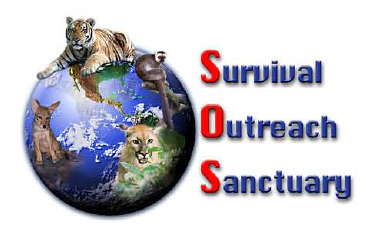We love having Juma here while waiting for a trial date and we will miss her terribly if she goes back home. We are happy that we were able to help. This wonderful cat remains in contact with her owner and handler who she is very bonded to. Read about her story below.
(FWC) Florida Fish and Wildlife Conservation Commission’s gunmen, unlawfully raided a Florida licensed wildlife facility on March 2, 2022. FWC in partnership with its most favored corporate entity removed, Juma, an African lioness from her handler and licensed facility under a false flag. Juma was removed from her home during an unlawful and violent raid on her handler’s licensed wildlife facility. The lawsuit seeks to return control of Juma to her lawful owner and push back on FWC’s retaliatory Marxist brown shirt tactics.
Juma has been lovingly hand raised by her owner since she was just a little cub. Juma was violently shot twice and dragged out by FWC gunmen and its business partner in an abrupt and unlawful raid. FWC and its business partner trespassed against Juma’s home facility in an afternoon raid. Several of the gunmen were fully kitted out with military grade tactical gear and weapons of war, on March 2, 2022. The FWC leader onsite, who was in communication with his superior at FWC headquarters, nefariously ordered the other FWC gunmen to stop the recording of their body cameras so that they could execute their plan without key audio evidence coming back to haunt FWC. Juma was ultimately removed from her home during an unlawful and violent raid on her handler’s licensed wildlife facility and financially exploited by FWC. What FWC never expected was that a lone citizen would revolt against FWC’s tyrannical conduct and file a lawsuit so that FWC’s illicit behavior could be exposed to the general public. Other licensed facility owners live in fear that if they speak out their facility license would be targeted and punished.
FWC has a history of killing animals, abusing its Florida citizenry’s due process, their right to privacy and most recently its authority against its licensees. Over the years, FWC has come under the influence of animal rights extremists and FWC has become progressively more abusive toward its small to medium family-owned Florida wildlife licensees, while at the same time showing favoritism toward its largest corporate owned facilities. FWC unilaterally selects and rewards its most favored activist controlled corporations and activist unlicensed corporate NGO “stakeholders” while violating the most fundamental American constitutional rights of its licensed Florida citizens.
FWC, over the years has become a highly politicized office of government, targeted and infiltrated by Marxist animal and property rights activism. In effect, one hand washes the other. The Florida legislature needs to hold an oversight review of FWC in what is officially termed an OPPAGA review. An (OPPAGA) Office of Program Policy Analysis and Government Accountability review of FWC’s relationship to its licensed and unlicensed “stakeholders” is just and warranted.
Juma's History as told by her handler
“Juma was born January 26, 2018. Her mother was a beautiful white lion named Mali. I didn't have my own facility at the time, but I saw her at least every other day. Most of the time it was Sunday, Tuesday, Thursday, and Saturday. A lot of times I'd spend the night so we could be together. If I wasn't there, she would be with the people that owned the facility. She was never just left alone. She always had someone to show her love. Juma had some problems, if she'd been born in the wild, she wouldn't have lived. To begin with she was walking a little funny. I just chalked that up to her being so young. By the time she was two (2) months old, she wasn't using her back legs. She'd have to pull herself around with her front legs. I took her to the veterinarian, and they said that her calcium seemed to be okay, but that she had weak bones and a cracked vertebrae and might grow out of it. I was bottle feeding her and made sure I gave her extra vitamins along with calcium and plenty of love. She was my life. It took about two (2) months, but she started using her back legs. The vet told me I needed to keep her from climbing up onto stuff and jumping down. When I was at the facility, I kept her inside and the bond between us grew super strong. She was a real good girl. While playing, she'd bite me and claw me when I was awake, but if I was sleeping, she wouldn't bother me. I slept on a couch in the living room. If I was asleep, she'd come put her chin on the couch and nudge me. Then I'd pick her up and we'd sleep together. It wasn't long before she got to where she was climbing on everything and I couldn't take her inside anymore, but that didn't mean that I didn't sleep with her from time to time, still. She was off the bottle by then, but I still had to give her vitamins, so I had to cut her meat up in small portions to hide the vitamins in and hold it in my hand. She was very good about not biting my hand. She could tell the difference between the meat I was feeding her and my hand, even if I had juice all running down my arm. To this day, she's still good that way. No matter what she's eating, if it's in my hand, she'll take it but my hand is safe. She's never been aggressive while eating. I can walk into her enclosure with her food and feed it to her. Another thing she does is she'll take my hand or my arm in her mouth and lightly chew on it or pulsate on it. It's kind of like a pacifier to her. She started doing that as a cub and still does it. As she was growing up, I'd put a collar on her and take her for walks. She loved going around to the other enclosures seeing all the other animals. She was never aggressive toward any of them. As I said before, at the time, I didn't have a facility. I had to keep her with someone that did. I made sure I saw her quite often. The longest she ever went without seeing me was 2 days and then I'd go spend hours with her. Once I was able to get my own facility, I put a tent up a few feet from her enclosure to stay in and I saw her every day and made sure she got plenty of love. Juma is now four and has spent her whole life with me. For the past 2 years, it was every single day. Unfortunately, because of issues with paperwork that FWC and I were having, I needed to file an appeal. I filed the appeal, but they came in and took Juma. FWC claimed I didn't file the appeal. When I showed them evidence of my appeal on my phone, they said, “it's in the wrong court, “we're taking her anyway.” They were very insistent that she go to Carol Baskin's Big Cat Rescue. Juma is used to getting loved regularly. She has always been caressed and hand-fed by me. Juma will be deprived of all of my physical human contact at Big Cat Rescue. I am so worried for her. I know she's wondering what's going on not being able to see me. Big Cat Rescue will not let me see her. That's the way they worked it to separate Juma from me. My worry is that she may get depressed. They've already said she's not eating like she should. The last Lion they took from someone was a male that died within 5 months. For the record, I've never abused Juma or any other animal in any way (Sworn Affidavit of Juma’s History Exhibit 1)”.
Both Juma and her owner were caught in the crosshairs of FWC’s power grab among FWC, the legislature and the Florida Supreme Court. FWC’s conduct in this case is a direct challenge to the American founding principles of governmental checks and balances. Specifically, FWC is abused its quasi-judicial powers in a manner that threatens the independence, authority and the principal role of the Florida Supreme Court and the judicial branch of government.
FWC is abusing their government power and continues to retaliate against JUMA’s loving handler. JUMA’s owner, is a Member of The Cavalry Group LLC, the nation’s largest advocate for animal ownership and animal enterprise, and The Cavalry Group’s legal team has stepped in to immediately challenge FWC’s unilateral actions to challenge FWC’s authority and unilateral decision-making process. FWC authorized the use of unnecessary violence against an endangered species. FWC used the threat of arrest, force, and intimidation to dispossess a private citizen of their personal property without a court order. FWC violated a private citizen’s constitutional due process rights to direct where their animal should be transported to and used a licensing clerical error as a pretext for redistributing and supplying FWC’s most favored “stakeholder” with a priceless endangered lioness, for corporate/governmental fi nancial gain. JUMA was injured and placed at risk of death and psychological torture. She was imprisoned in solitary con finement away from any regular contact or visitation from her pride leader and lifelong caretaker because of the FWC’s intervention and its financial and political interests. The Cavalry Group has reached out to the Florida Attorney General’s Of fice and Governor Ron DeSantis’ Of fice on multiple occasions for immediate assistance to correct this injustice to JUMA and her handler.
WHAT CAN YOU DO TO HELP:
- Please donate to support the fight against FWC’s tyrannical, retaliatory, and violent governmental abuses. DONATE HERE
- If you have had any interactions with FWC or know anyone who has experienced FWC's wrath, please share your story directly with Mindy Patterson HERE.
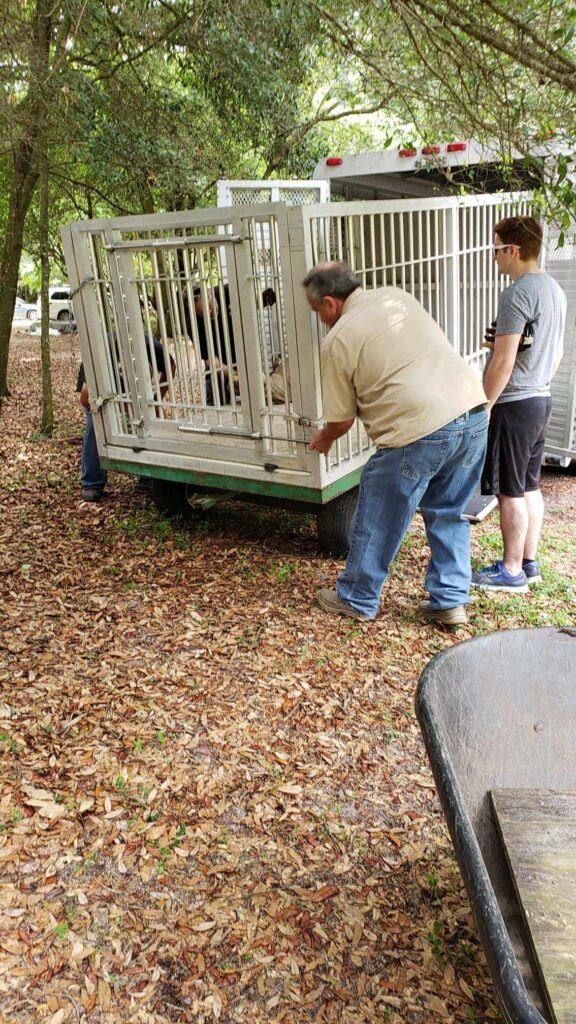
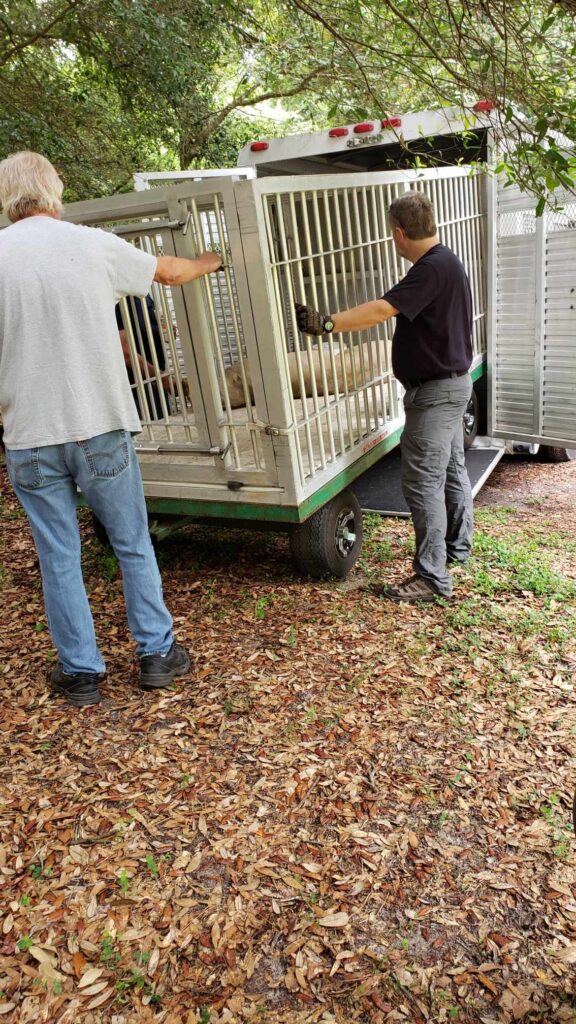
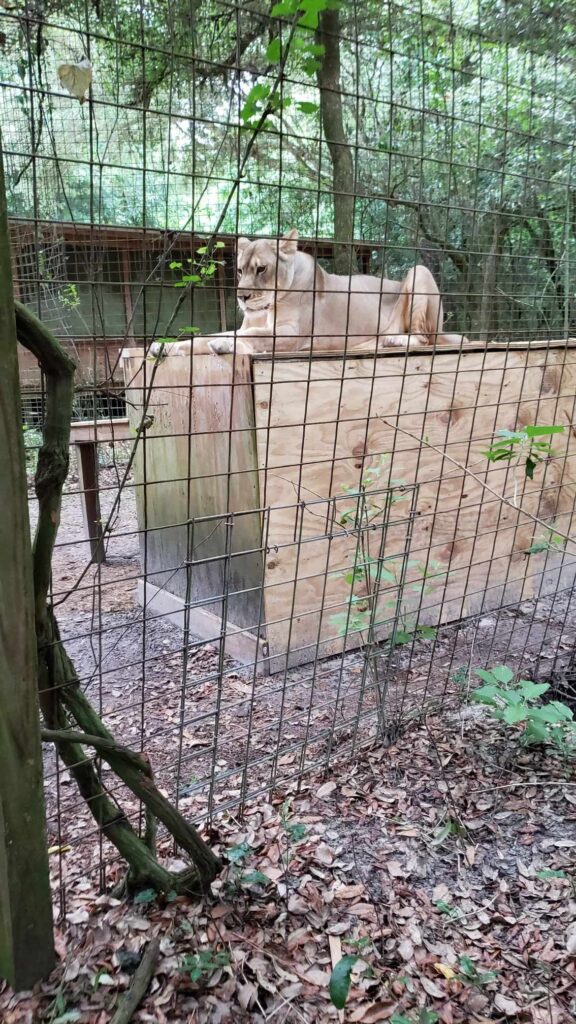
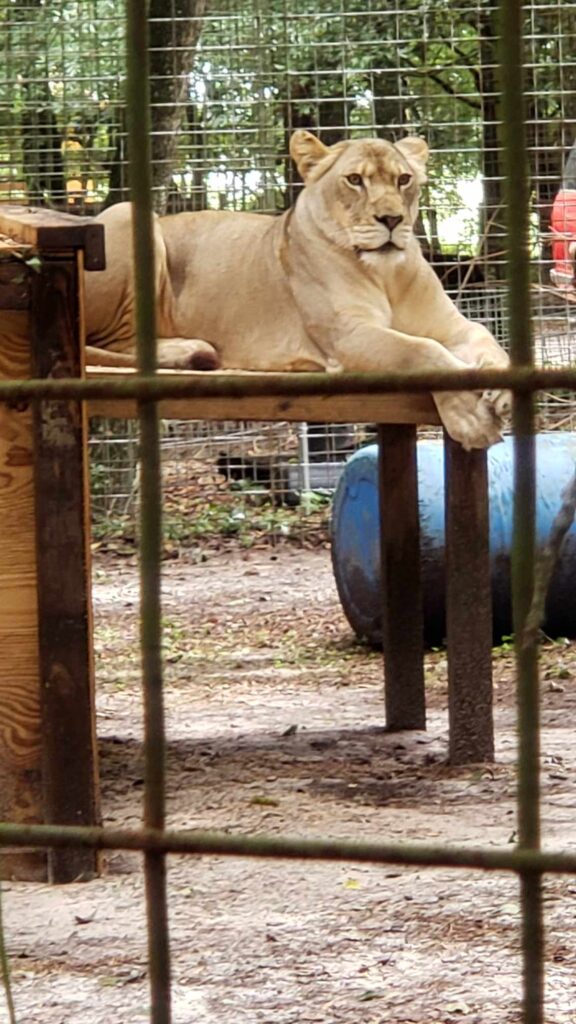
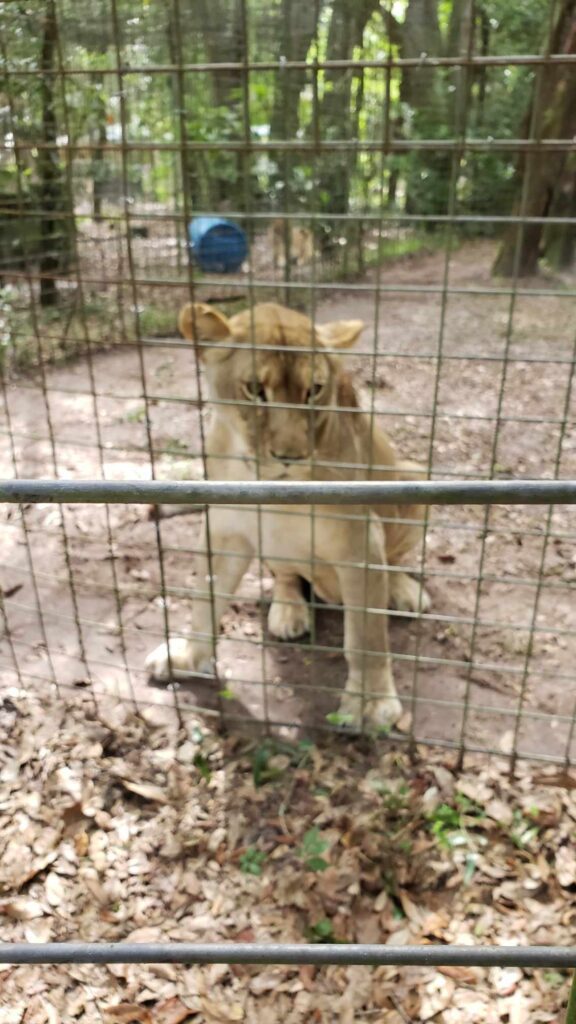
What a great day to witness the wonderful work that these officers do with their dogs. They tracked volunteers through the woods. They were not the least bit distracted by lions, tigers, or any other animals or smells. They were focused on finding their target. What a fun thing to watch and we hope they come back.
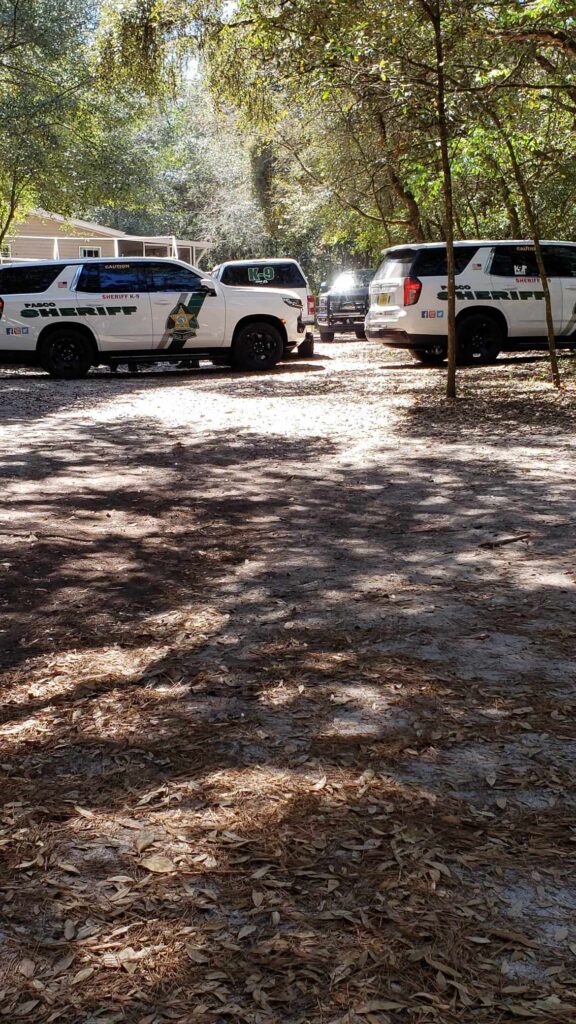
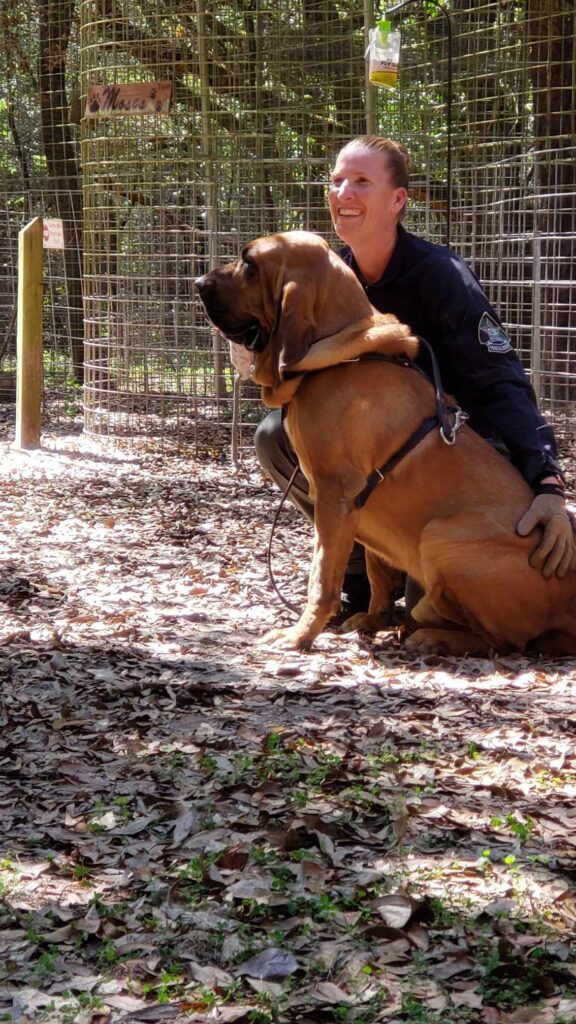
SOS welcomes Donkay to the sanctuary. Donkay's previous home was sold, leaving him without a place to live.

To be used for non emergency procedures. We were lucky we had strong volunteers to carry it and put it in place.
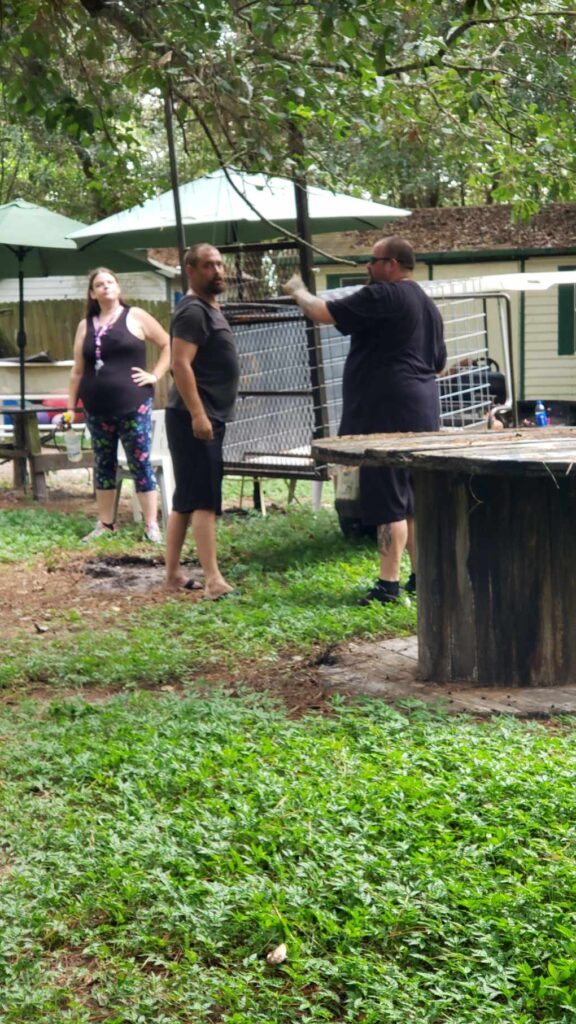
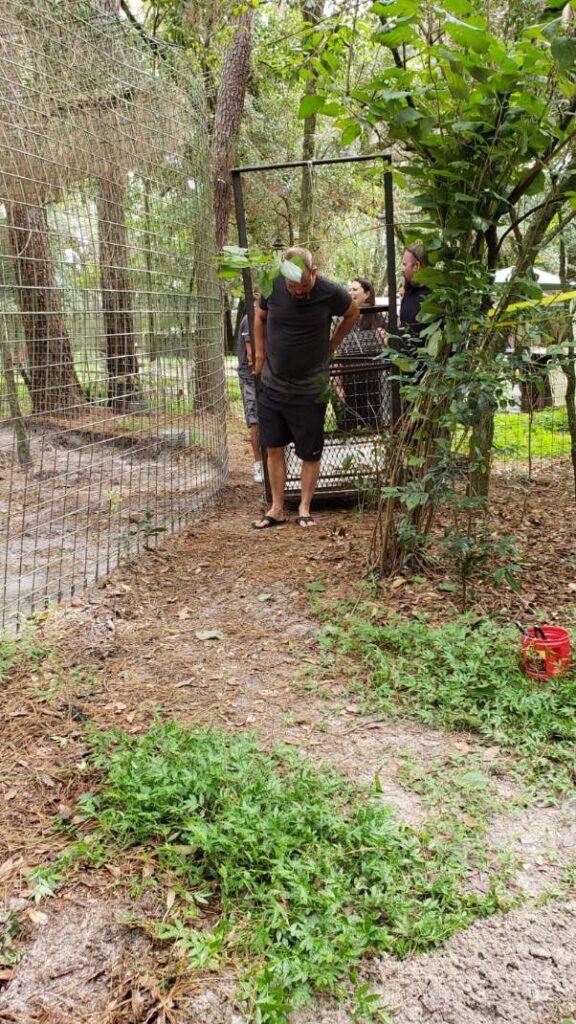

SOS receive a phone call from a family looking to rehome their young potbelly pig, Chloe. SOS was more than happy to provide Chloe with her forever home.






SOS was happy to host Dr. Stephen Unger's Florida Wellness Medical Group annual company picnic. What a great group of people. They brought games, delicious food, and made a sizeable donation. It was our pleasure and it was also great enrichment for the animals. Enjoy the pictures below of the event.





The boy scouts helped out with gathering limbs and cleaning up the property.



Progress continues slowly with dedicated volunteers, Tony, Todd, and Katlin from Wisconsin. There's still more work to be done. We need to add more boards, paint it, and more.













It took some imagination and creativity to figure out how to safely capture the coyotes without having to anesthetize. Every effort was made not to tranquilize these coyotes to relocate them safely to their new large enclosure, which also has an enormous rock shelter. They have settled into their new enclosure nicely.







It took some imagination and creativity to figure out how to safely capture the coyotes without having to anesthetize. Every effort was made not to tranquilize these coyotes to relocate them safely to their new large enclosure, which also has an enormous rock shelter. They have settled into their new enclosure nicely.







Volunteers have been working hard to build a new, large, beautiful enclosure for our resident coyotes, Sage and Macy. Work has been progressing and we are almost ready to move them to their new forever home. Stay tuned!



Volunteer Chad is building a cage around the hay shed to protect it from the goats. Smore has been working hard to break in.

SOS welcomes Peppe the skunk.



Every Thanksgiving, the cats get a special treat. The big cats get whole turkeys (from the grocery store) tossed into their enclosures for some food and fun.

Volunteer Tony Case, Holly Case, and Katlin Reyniers arrived from Wisconsin to start work building our barn for donkeys and horse. We are so fortunate to have volunteers that travel from so far on their vacation to stay and donate their time to work on projects.



20 years is quite the celebration. Volunteers came for food and games.



Hope is a miniature Horse born in 2010 at Whispering Meadows Farm. Hope’s owners were downsizing, due to health issues, to a smaller home where Hope would not have had suitable space. We adopted her and her friend Bolt, the goat, approximately 7 year old, to provide them with a permanent home.
Bolt was adopted by the same owners from an FFA student. He was taken in as a companion for Hope and they have been together, as close friends, for 5 years.
Mr. Wiggles, a pekin duck, lived in a neighborhood in Zephyrhills. Pekin ducks are not native Florida ducks, so it's clear that someone released him. The neighborhood all fed Mr. Wiggles and looked out for him. Unfortunately he was attacked by a dog and was brought to a local wildlife rehabilitator to take care of his wounds and give him antibiotics in case of infection. Once his wounds were all healed, he was brought to SOS to live out his life. Welcome Mr. Wiggles.

4 donkeys, Luis Andres (approx. 9 years old), El Boy (approx. 7 years old), Jose (approx. 7 years old), and Berto (approx. 25 years old) arrived at SOS in January 2019. Judy’s sister, Sylvia, paid the adoption fee to rescue them from the kill pen before being shipped across the border to be slaughtered.
According to our veterinarian, one of the donkeys is at least 25 years old. They will be provided with a home for the rest of their lives.
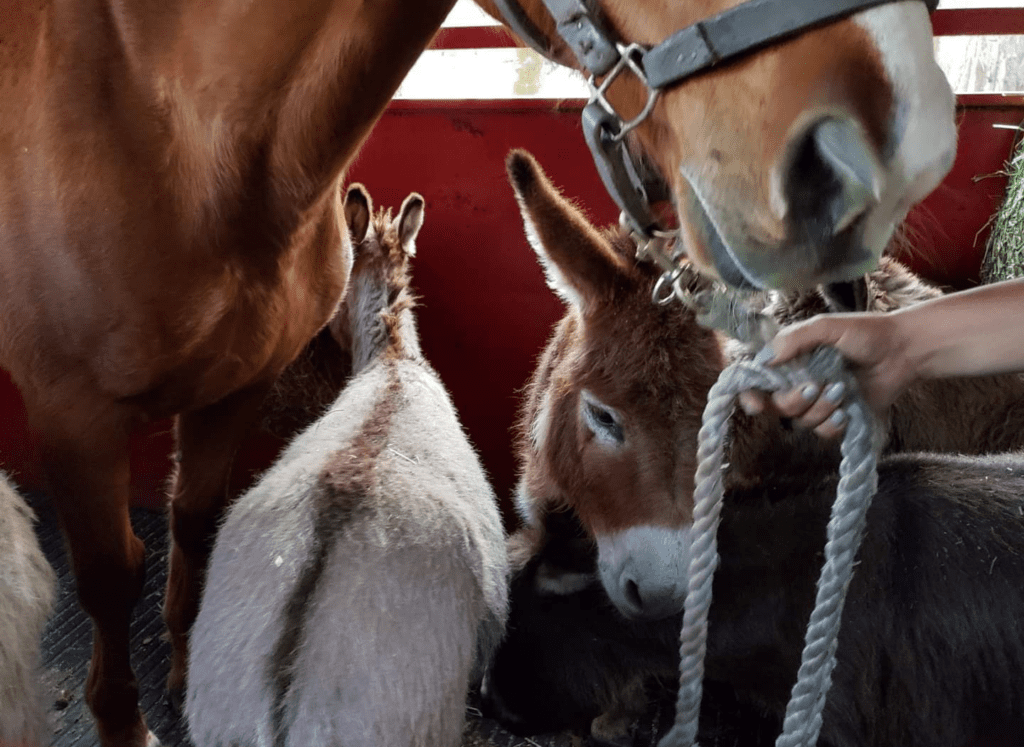
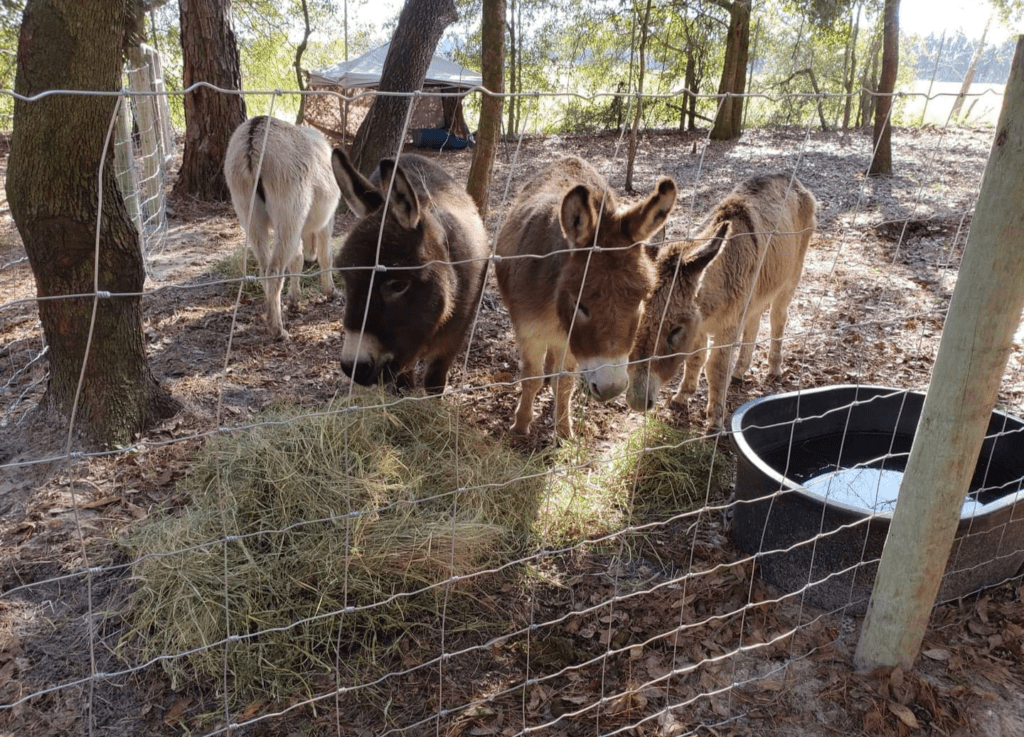
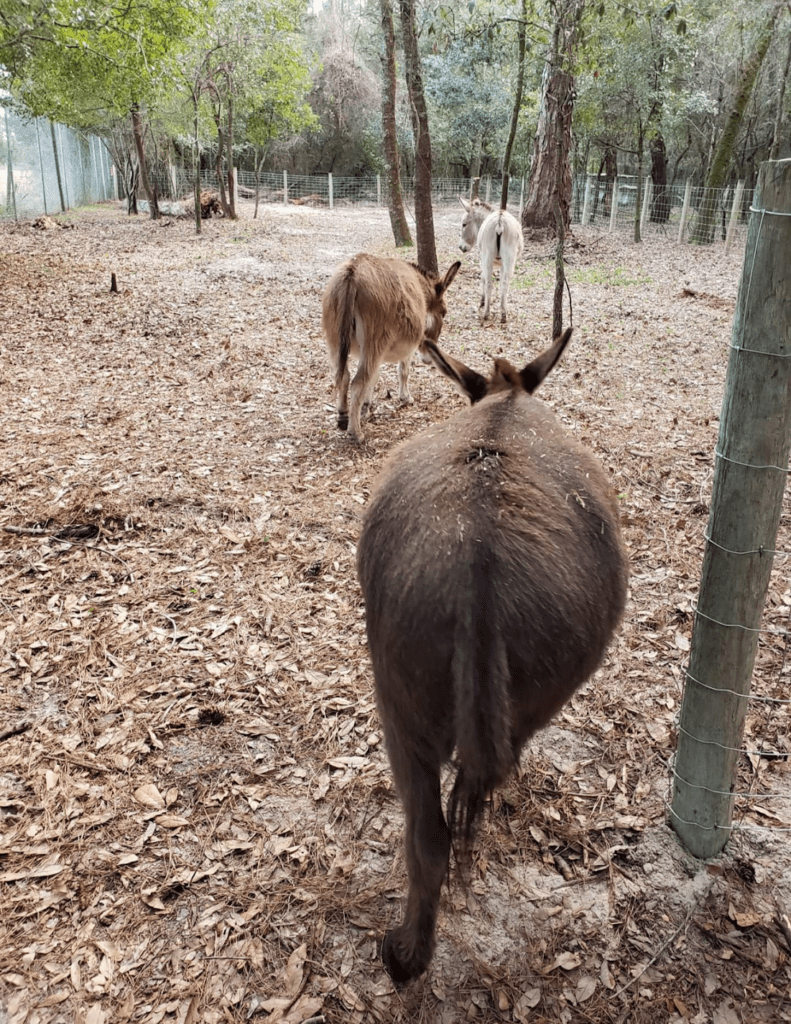
There has been nonstop work at SOS getting Dexter's new enclosure ready, to include an inground swimming pool! We just know that Dexter will love it.
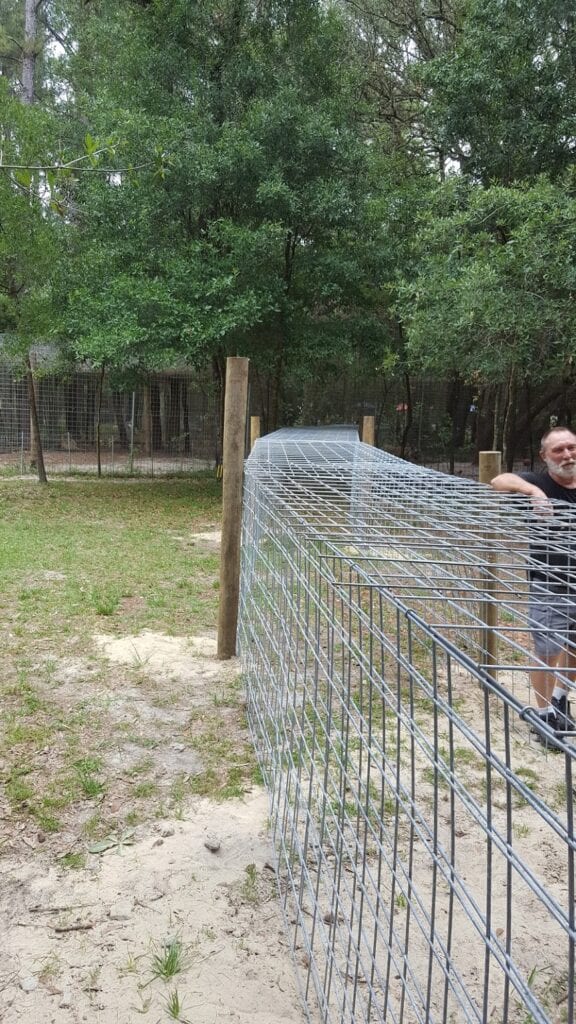
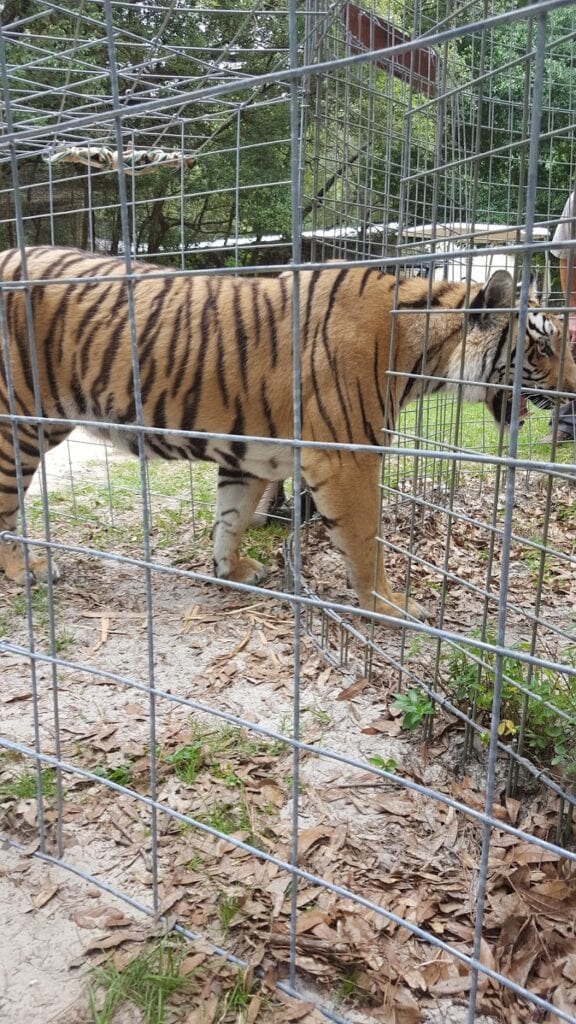
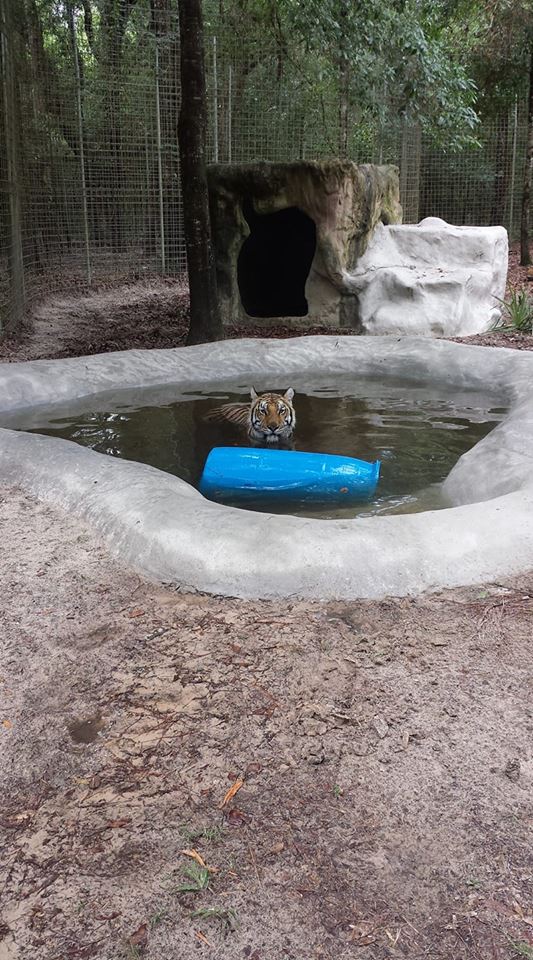
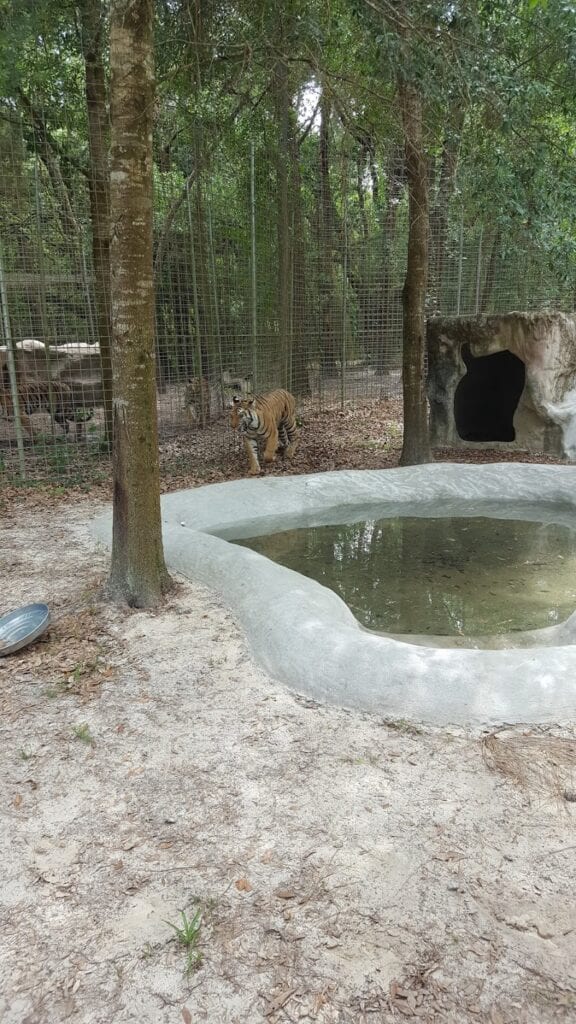
Charlotte is a wild hog, with an estimated birthday in March 2017. Charlotte was found wandering in a neighborhood at approximately one month old. There was no sign of her parents. The woman who found her reached out to a local wildlife rehabilitator, who happily picked her up.
She spent one year in a loving home where she was well cared for by Bill and Fran. Bill and Fran decided to sell their home and retire, so they reached out to SOS to see if we could take her in. They paid for and built her new pig pen at SOS. We are so happy to take her in. Charlotte is such a sweet pig.



Kimana and Lomasi, litter sisters born 6/5/2013, were about to be confiscated by FWC. We received a call asking if we would take them in. We said of course! Welcome to SOS Kimana and Lomasi.
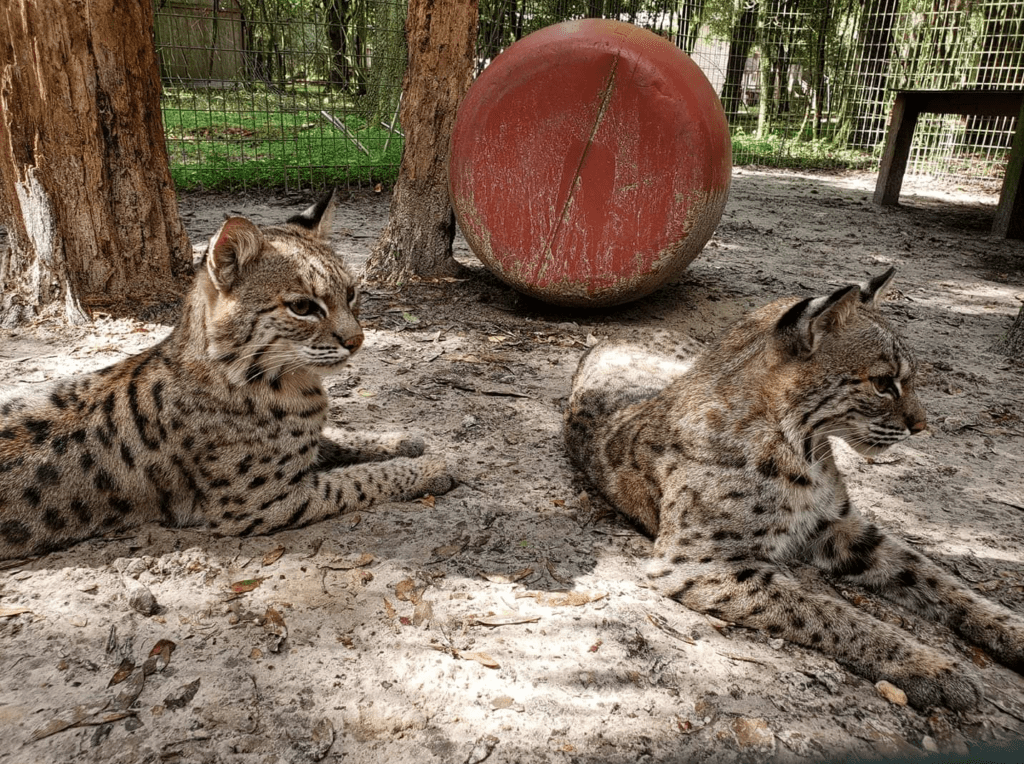
CZAR, born in 2013, arrived at SOS in poor shape. He is emaciated and full of parasites. He also shows symptoms of abuse and is very afraid of men.
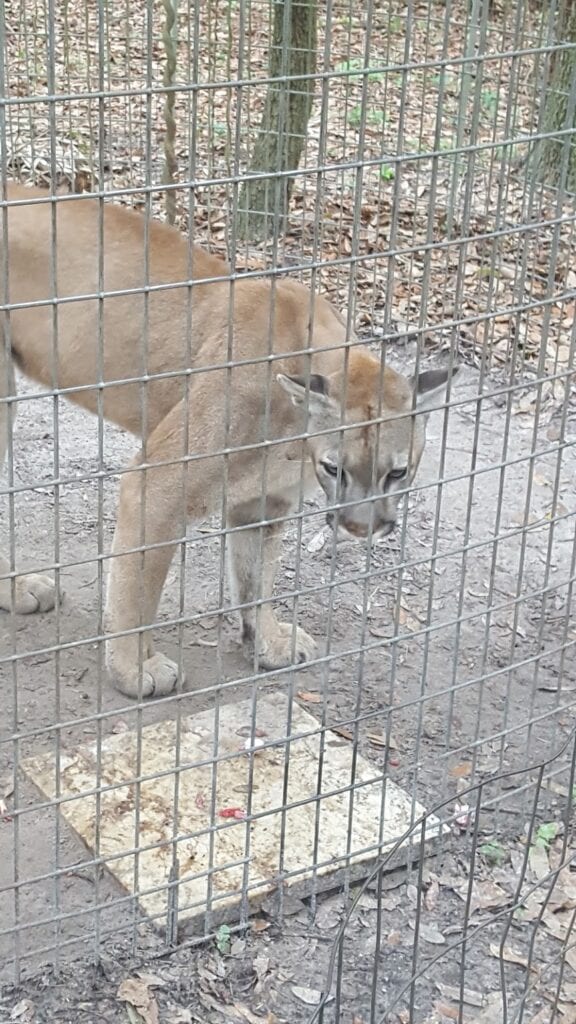
L.C. lived in an awful facility in Okeechobee. She lived in a 10x14 ft cage her whole life until we picked her up, which is why she is obese. Florida permits and licenses were revoked by the state of Florida due to numerous and ongoing violations pertaining to the welfare of animals. We are happy to provide L.C. with an enclosure that is over 3000 square feet, with a rock for shelter, toys, trees, and the chance to finally see the sky.


Dexter, born December 2015, was a photo cub. Photo cubs can only be touched by the public from 8-12 weeks of age. During that time they are used by unscrupulous people to generate revenue and then dumped or killed when they can no longer bring in money. Dexter will be provided with a forever home at SOS and we couldn't be more thrilled.

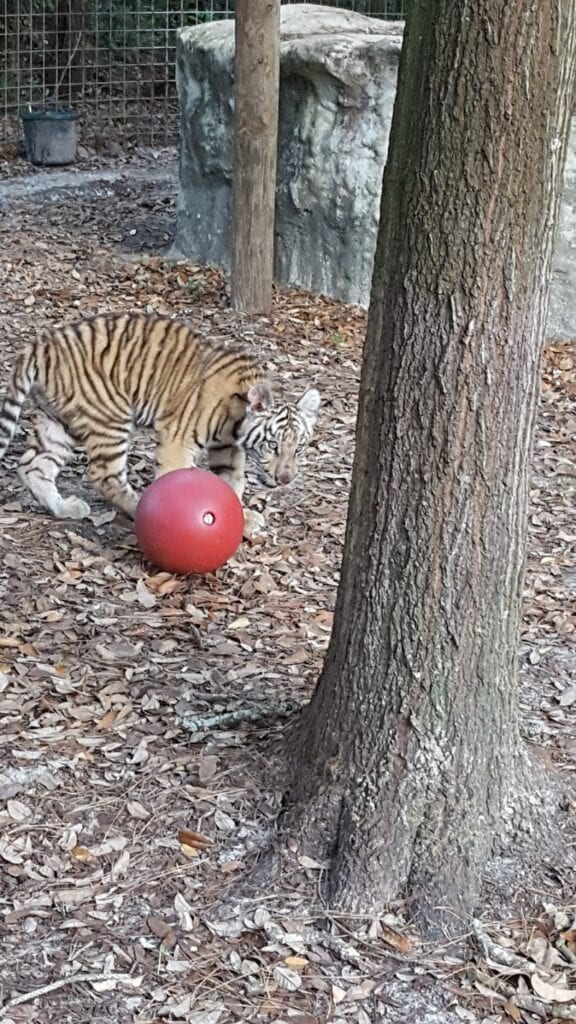



Miriam and Moses, born April of 2015, were photo cubs. Photo cubs can only be touched by the public from 8-12 weeks of age. During that time they are used by unscrupulous people to generate revenue and then dumped or killed when they can no longer bring in money. SOS is happy to take in these two beautiful girls to give them a forever home where they can enjoy a large enclosure with a pool.
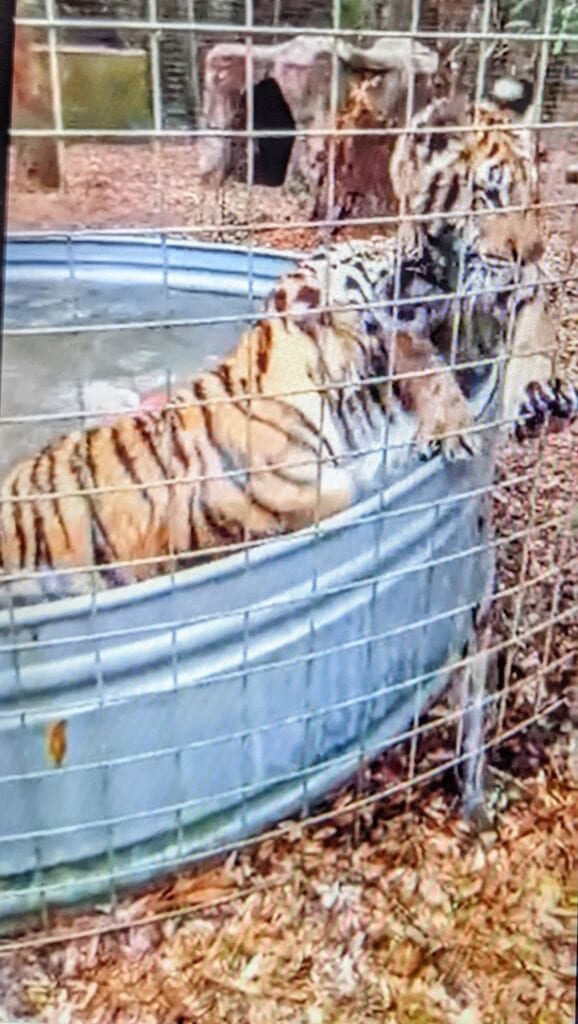
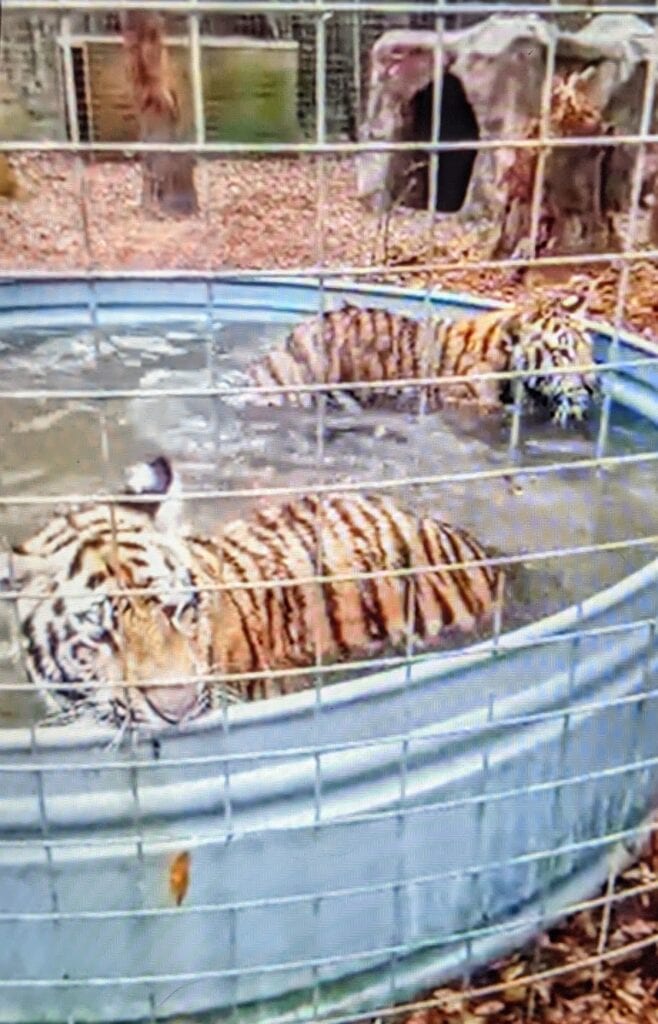
S’more was given to the sanctuary from a girl who only shows female goats. Being a male he would have been euthanized if not adopted. SOS was happy to provide him with a forever home.
Can you figure out why he was given the name S'more?



Big day today! I went to my old stomping grounds and alma mater in Gainesville, at UF College of Veterinary Medicine. The mission, to help transport my tiger patient, Shoshanna, to the vet school for evaluation and surgical removal of a mass under her eye. Shoshanna is a 14 yr old, white Bengal tiger, who resides at Survival Outreach Sanctuary. Owner Judy Watson has given us permission to post the photos I was able to take. Shoshanna was seen by the wildlife medicine service as well as by the ophthalmology service. Anesthesia, wildlife, and ophthalmology teams (made up of clinicians, residents, and veterinary students) were all involved, and well coordinated with each other, to safely accomplish the treatment goals for Shoshanna. I got to go into the operating room with Shoshanna and observe the procedure. It was good to see some of my old clinical professors, as well as meet new faculty, and tour the new hospital. Shoshanna has been safely transported back to her sanctuary, with a long recovery and healing period ahead. Tissue biopsies were sent to determine if the mass was cancerous. ---Dr. Melanie McGavern














https://www.tampabay.com/news/publicsafety/lion-reported-loose-near-masaryktown/2159469/
In the midst of our trying to evict unwanted tenants/volunteers, they became disgruntled and caused many nights of worry for months before they departed. They removed a stake wire from the bottom of Savannah's enclosure, allowing her a very small area to squeeze out. She never left the property, wandered around quietly and slowly, causing no damage to the volunteers that were here or the goats that wander freely, finally settling down by Rajah the tiger and waited for three hours for FWC to arrive with tranquilizing equipment. She was sedated and moved without incident. She is now in an enclosure with a 3 feet deep and 2 feet wide cement footer.

POSTED IN PROJECT IMPACT UPDATE ON JULY 23RD, 2013 BY NOAH B |
The following post is a project update from Noah Bazis, Campaign Organizer, and the Survival Outreach Sanctuary Grassroots campaign that raised $2,190 to build an inclement-weather shelter to protect Savannah the lioness from the dangers of hurricane.
Wire was purchased and delivered to build lockdown shelters to protect animals during inclement weather.
We are strictly a volunteer organization, so our projects take a bit of time, working mostly on weekends. One shelter has been finished and has already been put to good use as repairs were needed in the lioness’s permanent enclosure.
Thank you,
Judy Watson
Ed was found at approximately 3 months of age. He had fallen from a tree during a big storm, suffering permanent neurological damage. Ed will live out the remainder of his life at the sanctuary.
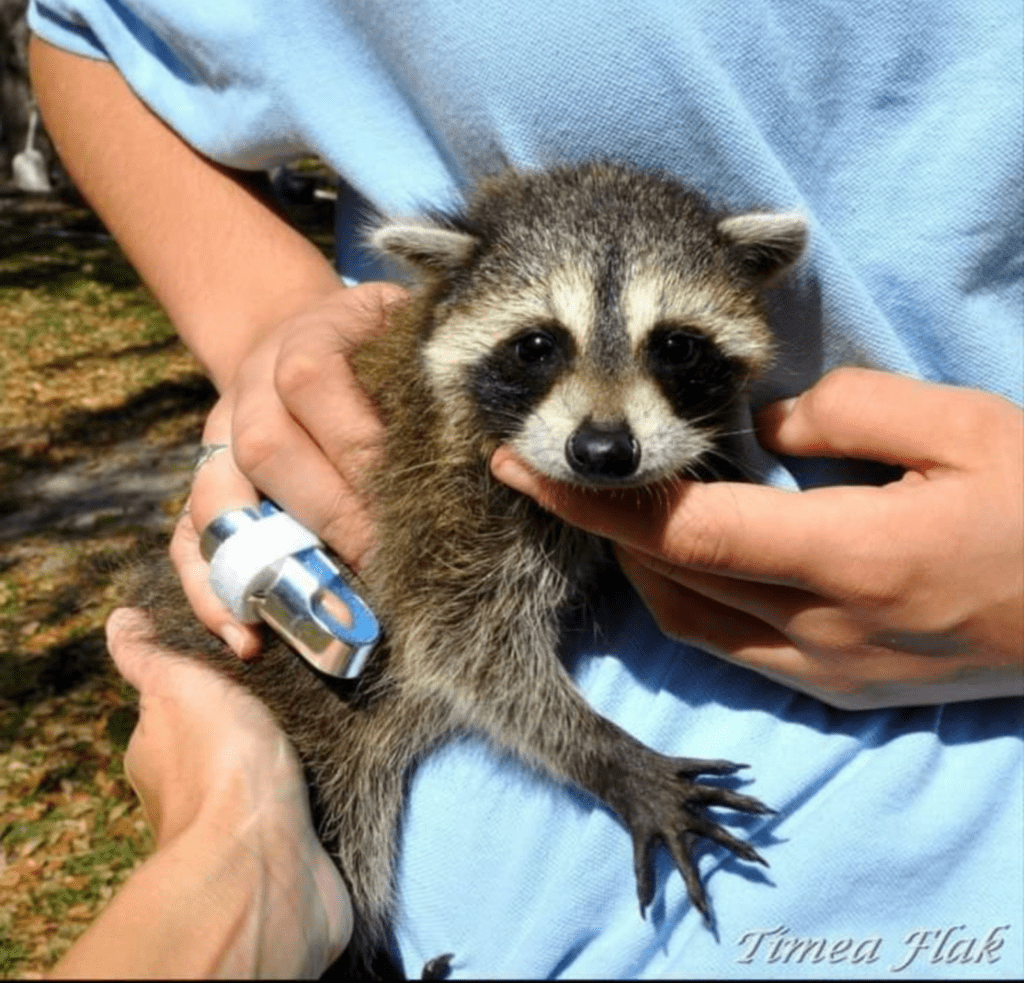
SOS was thrilled to welcome interns through the University of South Florida for the entire summer. Through their volunteerism, they were able to help build two lockdowns, work on everyday animal husbandry, and animal enrichment.
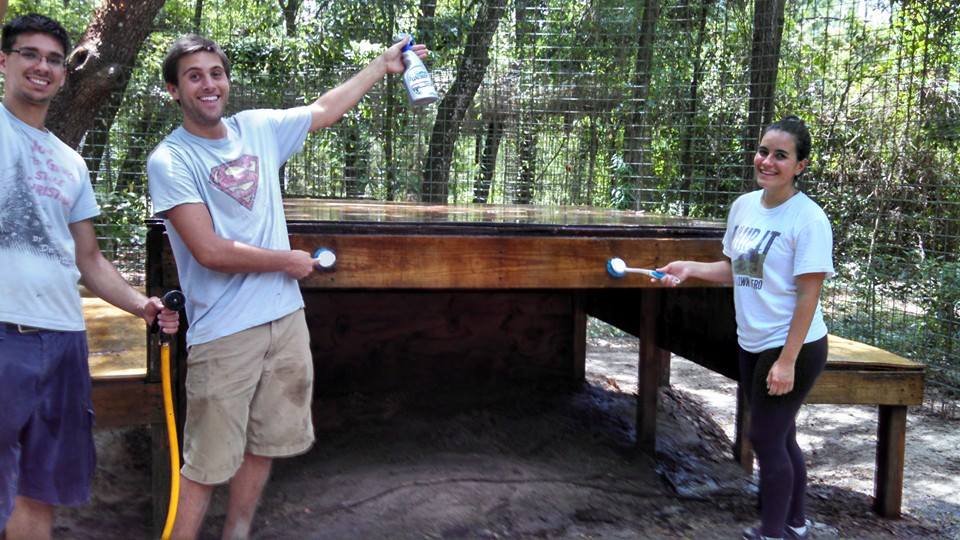
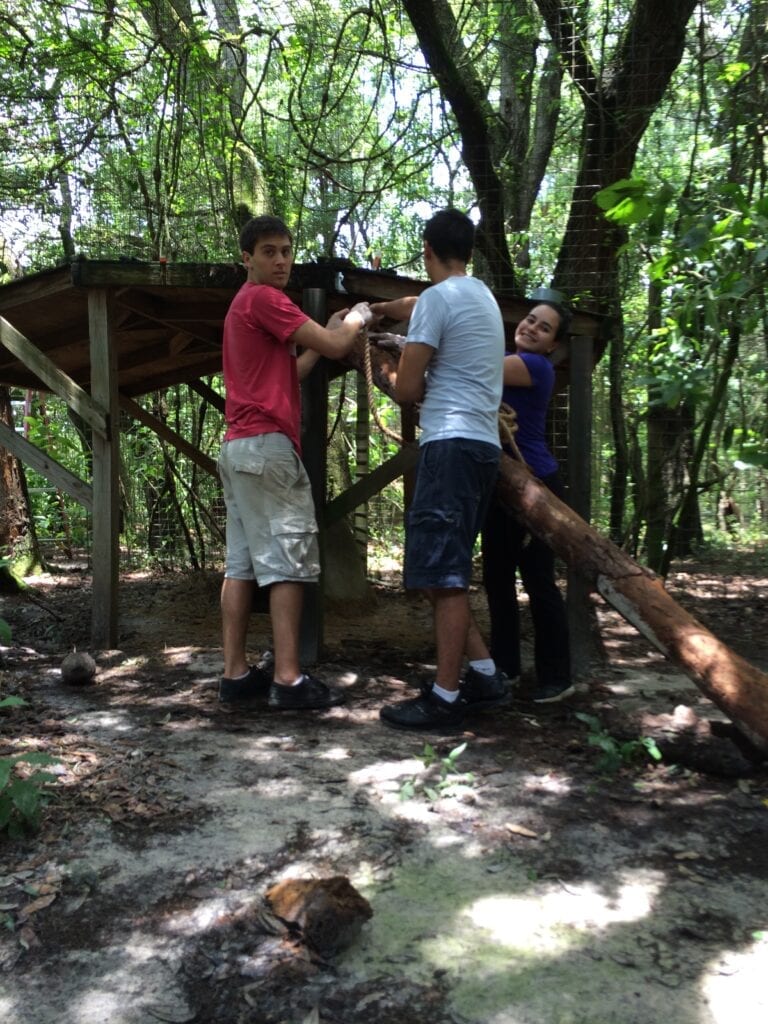
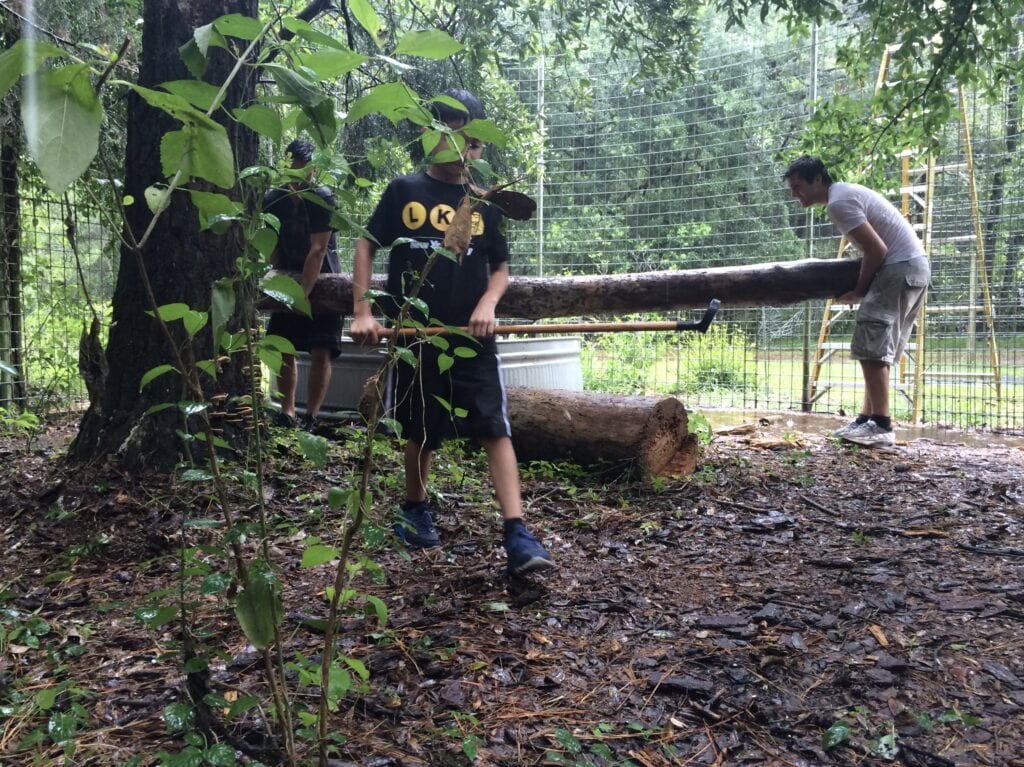
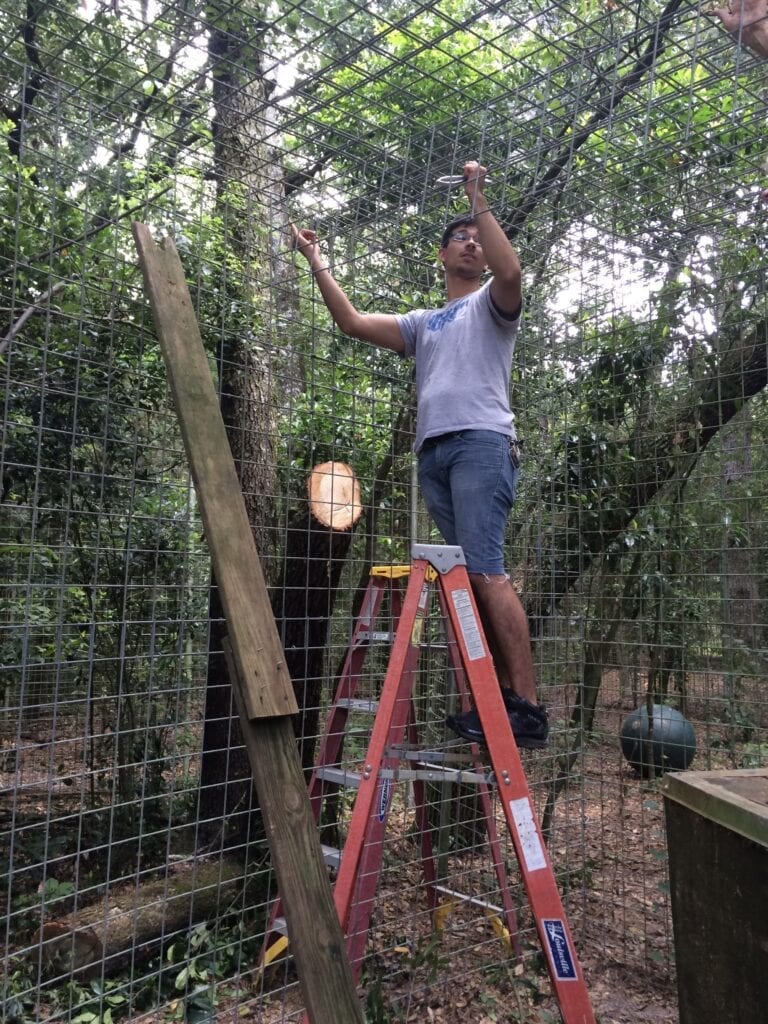

| Attention Survival Outreach Sanctuary fans! Groupon has chosen us as the best of the best and they are running another campaign for us. See link below to vote for us We're teaming up with Groupon Grassroots, the philanthropic arm of Groupon to fund a project. With this campaign we are aiming to raise the necessary funds to help our elderly cats. If 36 People Donate $10, Then Survival Outreach Sanctuary for Wildlife Can Fund Medicines for Its Elderly Big Cats. Since you are essential to our success we want you to know about our campaign. Here is how you can help: Be the first to give by supporting our goal to raise the necessary funds for "Elderly Big Cat Medicines" . Thank you for your support. |
| Starting Wednesday 12/26 and running to 1/9 (see attached link). https://web.archive.org/web/20160517175656/https://www.groupon.com/deals/survival-outreach-sanctuary-for-wildlife |
The Issue: Risks of Disease and Arthritis in Elderly Big Cats
When big cats such as tigers and lions age, they can face the same types of ailments that affect humans, such as disease, infections, and arthritis. Medicines and treatments can help the elderly cats regain their health, improving their quality of life.
The Campaign: Funding Medicines for Elderly Big Cats
If 36 people donate $10, then Survival Outreach Sanctuary for Wildlife can fund one month of medicines, vitamins, and arthritis treatments for its elderly big cats. Volunteers observe the elderly cats daily, keeping their enclosures clean and administering any needed medicines to improve their quality of life. Each additional $360 raised will fund the cats’ medicines, vitamins, and arthritis treatments for another month.
Hello Survival Outreach Sanctuary (SOS) Fans! The big day has arrived—our Groupon Grassroots campaign launched and we’re currently funding a project on Groupon's site to raise money to provide a better hurricane shelter for Savannah the lioness. Here’s what you can do to help out:
1. Go to the campaign page to donate and help us reach our goal.http://www.groupon.com/.../grs-survival-outreach...
2. Share campaign news and progress with your friends on Facebook and Twitter, as well as through email.
Again, thank you for your support!
July 1, 2012 The car is loaded with approximately 1,500 lbs of meat ready to leave for delivery to our friends in north Florida flooded by tropical storm Debby. They lost their home and freezers loaded with food for their animals. Thank you Lisa Listowski for your help picking up the meat and packing it. Thank you Raquel Pereda for driving us up. They were so appreciative of our help and we were so happy that we could help.


Zuber is an African Serval. He was born at S.O.S. from Father Rudy and adopted (believed to be Spayed) Anya. Although we do not breed at this sanctuary, we were thrilled with the surprise. Since we are just a rescue sanctuary, we rarely have the opportunity to care for babies.

Anya, an African Serval, and Daisy, an African Pygmy goat, arrived from a facility that was closing down. Anya is two years old. Daisy was pregnant and almost ready to give birth. Just two days later, she gave birth.
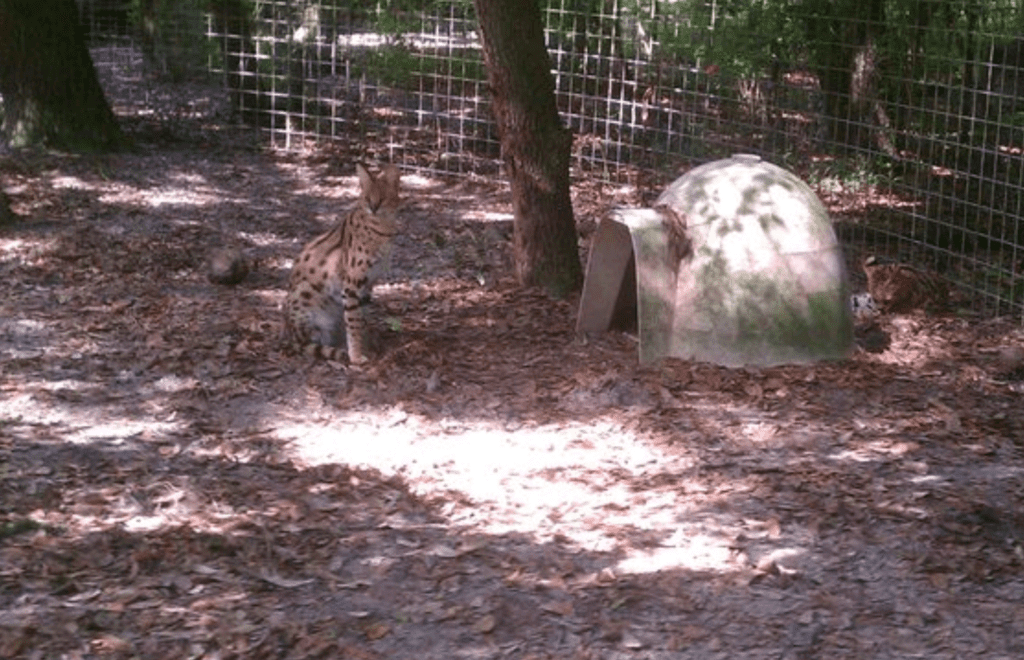
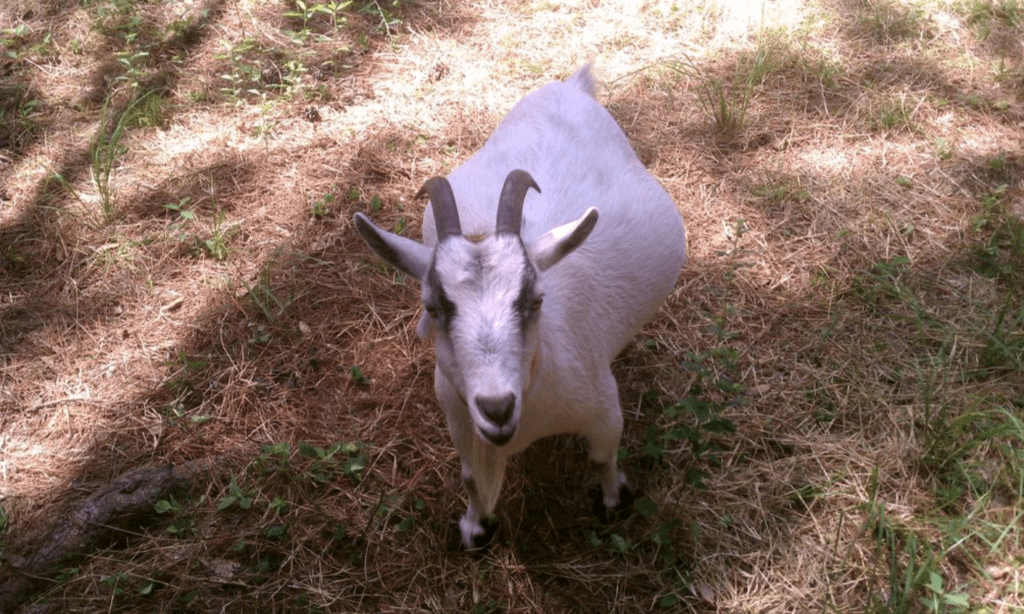
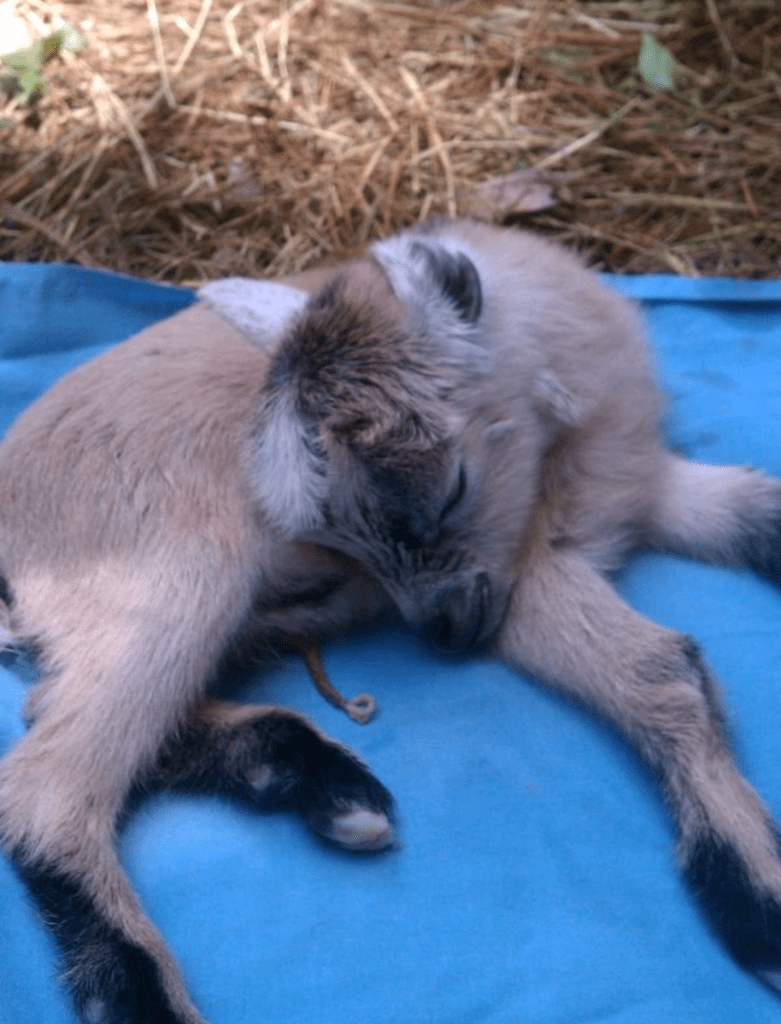





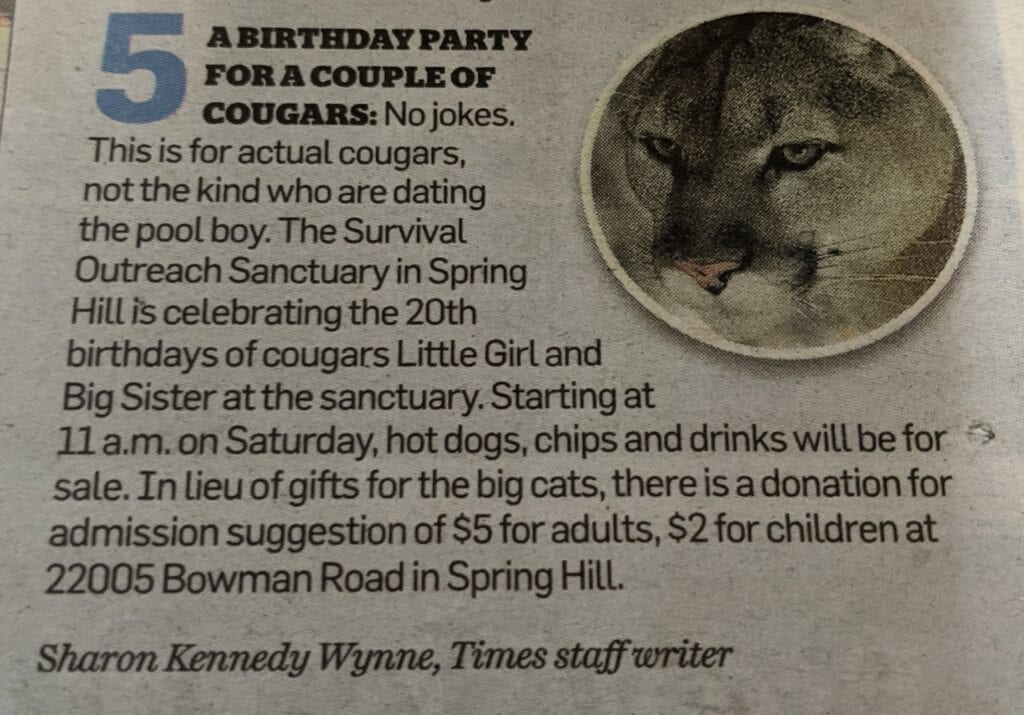

Here is SOS's first You Tube Video.
Video by Raquel Pereda and produced by Steven Unger




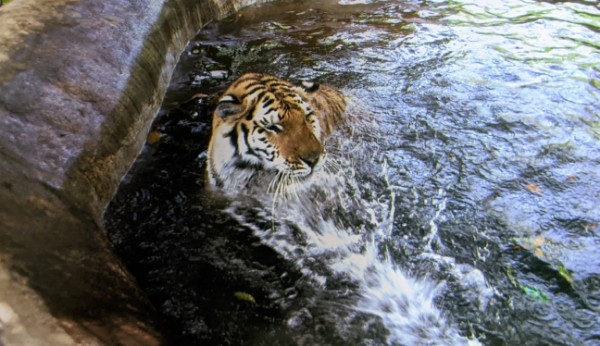







Savannah arriving at SOS on April 11 2009 after being transported from a facility in south Florida. Savannah's previous home was closed down by the Federal Government for many violations of the animal welfare act. http://www.palmbeachpost.com/news/news/state-regional/south-florida-wildlife-company-accused-of-neglect-/nL9Rs/

Savannah's life at Survival Outreach Sanctuary. We are proud to be able to continue to provide the best homes possible for exotic animals as the need arises and the necessary funding is available. As the cost of living rises so does the cost of care of these magnificent animals.
Along with Savannah, we were able to rescue an African spur thigh tortoise, Henrietta. We estimate that Henrietta is 8 years old.


Ms Sandra Lord passed away September 2008 before fulfilling her dream. She wished to retire and live with Shoshanna here at Survival Outreach Sanctuary (S.O.S.) In her honor Shoshanna has been relocated along with her roommate (Natalia) to this Facility. Here she will live out the remainder of her life as Sandra had hoped. Shoshanna and Natalia now enjoy a roomy outdoor enclosure with a large rock to climb on and an in-ground pool to cool off in.





On June 7th, 2008 the Young Marines came to help us out. After a tour of our facility the Marines went to work clearing invasive vines from choking the life out of important trees on the property. They worked diligently, pulling, digging and cutting vines until they had filled 15 bags with vines
and saved many trees. Each Marine was given information sheets about the importance of trees in the environment for a healthy planet. What a wonderful group of young people. They were such a big help to us and our trees and we certainly hope that they will return to help again. The Young Marines is a youth education and service program for boys and girls, ages 8 through completion of high school. The Young Marines promotes the mental, moral, and physical development of its members. The program focuses on character building, leadership, and promotes a healthy, drug-free lifestyle. The mission of the Young Marines is to positively impact
America's future by providing quality youth development programs for boys and girls that nurtures and develops its members into responsible citizens who enjoy and promote a healthy, drug-free lifestyle.






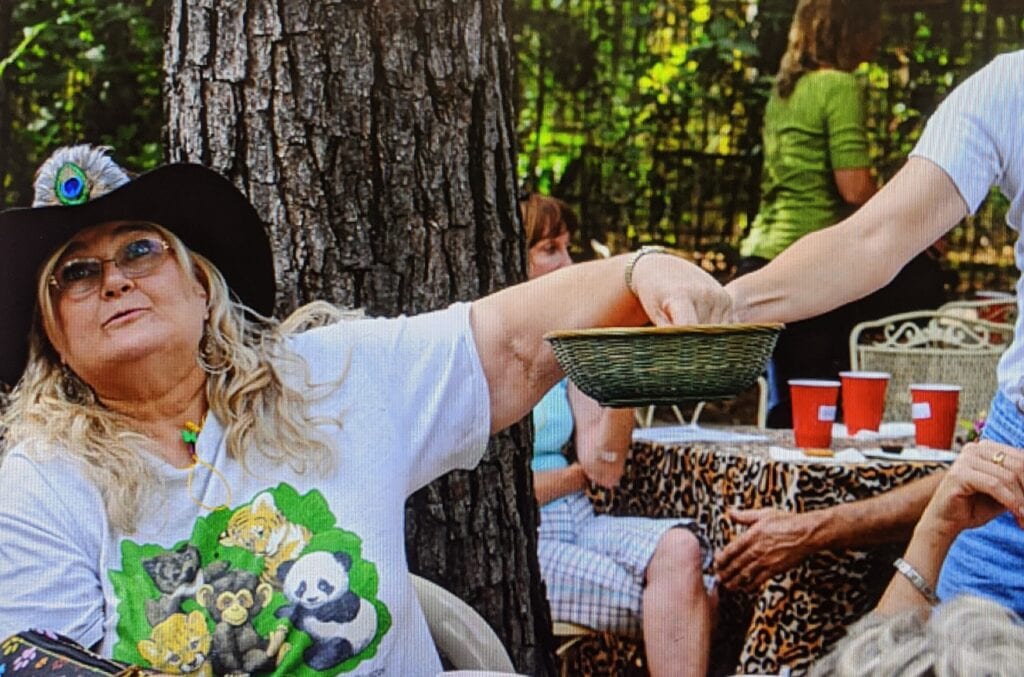


The Roots and Shoots kids participated in the Earth Day BBQ by putting up posters and presenting their animals to guests.




Survival Outreach Sanctuary, joined 40,633 campers from all over America for the National Wildlife Federation's "Great American Campout" on 6/24/06. Everyone had a great time and learned many new interesting facts about wildlife. We had 10 kids participating, ranging from 6 years of age to 14 years of age. For some it was their first camping trip, for all it was their first time camping at the sanctuary. Listening for wildlife sounds took on a new meaning when the lion roared, the wolf/dogs howled and the cougars chirped. We took nature walks around the property to view the many stars and some of the kids even came upon an unsuspecting armadillo (much to his surprise). We had a great cook out and made delicious s'mores over an open fire. After all what is a good camping trip without s'mores. We had a visit from a reporter with the Laker, a local newspaper, and we look forward to reading her story and seeing her pictures. She was so delighted to meet the children and to learn of their great interest in our environment and conservation of our natural resources.


Here is a mid stream update on the forced divestiture of all exotic felines residents at the defunct K & R Sanctuary near Panama City, Florida. As of this day, 8 cats have been re homed including 2 tigers, 2 cougars, 2 leopards and 2 bobcats. Still remaining…8 cougars and 3 tigers. The Court ordered divestiture deadline was May The Florida Fish & Wildlife Conservation Commission is working closely with our group of volunteers to place the remaining animals. At some point, one must conclude that several of these animal, especially one older male tiger and one blind female cougar will be destroyed if no takers. A little help, please by spreading the word.
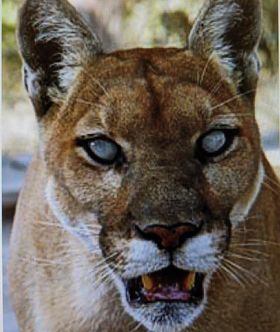
When the above e-mail reached our office, I knew instantly there was only one thing to do and that was to offer to provide a permanent home to the blind cougar and perhaps a cougar friend to make her move and adjustment to a new home more comfortable. After a few phone calls to the lady that had taken responsibility for the care of these animals, Gary Borland, a volunteer and I, were on our way to Youngstown, FL (near Panama City) to retrieve two cougars, June 10th, 2006 Billie was so grateful for my phone call as the blind cougar was the only one that she was
really worried about not being adopted and it was clear to me that Sweetpea, as she is called, was one of her favorites.
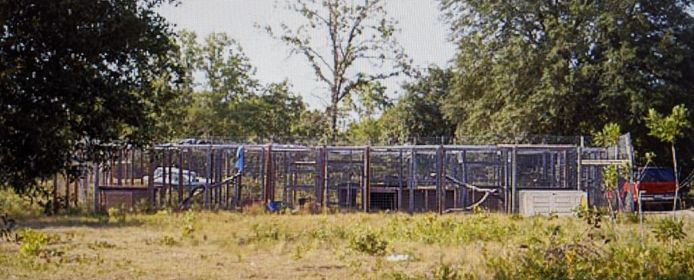
As we drove in my heart sank to see the way these animals were living and I understood very clearly why the Florida Fish & Wildlife Conservation Commission had taken the necessary steps to close this place down. My biggest heartache came when we had to leave so many behind. How I wished that we could have taken them all. It is clear to me that our (SOS) biggest goal for the future is to secure more financial sponsorship to be able to build enclosures that will be ready for these emergency rescues. Once the court ordered divestiture, these animals should not have had to endure another day in these conditions.
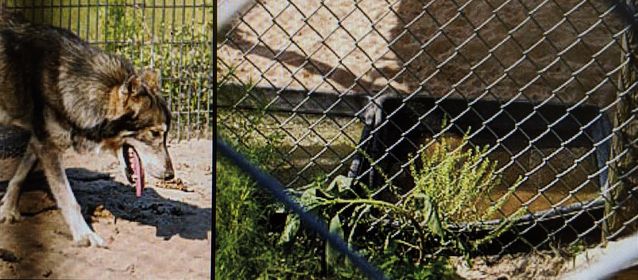
Through the help of Jim Broaddus, Bear Creek Feline Center, who got the word out on the internet and so many others that came through to help, the latest word I have received is that the remaining cats, 3 tigers and 6 cougars were picked up for their trip to a sanctuary in Alabama. All the primates were also picked up. The only ones that are left are 4 wolf/dogs and 2 wolves which we are desperately trying to find homes for. Gary and I have joined the rescue efforts of so many others to find these beautiful animals suitable homes.
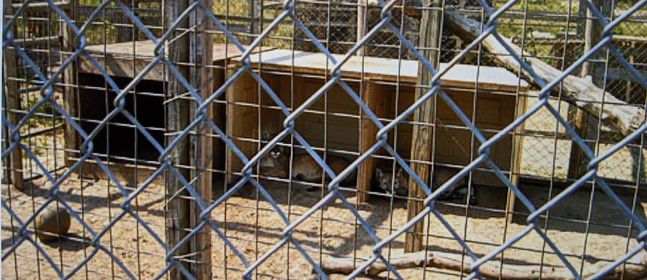
It's great to know that networking among caring animal people got the job done. All of us, the small organizations in Florida and beyond, did our part in doing all that we could do to follow our hearts and our mission to provide permanent suitable homes to animals in need. It also saddens me to know that the bigger organizations in Florida, the ones with the big financial records, remained quiet through this most desperate situation. Some, however, won't remain quiet but instead use this situation to criticize, point fingers, place blame and defame others instead of cooperating and working together for the welfare of animals. Isn't the welfare of animals what we are supposed to be concerned with? Isn't this what good people donate their hard earned money for? THE WELFARE OF ANIMALS. Where oh where were the big cat RESCUE organizations in Florida? - the ones with all YOUR money. Some have worked tirelessly for years to have a State run Sanctuary in Florida so animals can be moved immediately from deplorable conditions. I for one, think this is a solution to a huge problem when animals need emergency rescue. The animals could then be put up for adoption to private reputable sanctuaries. The animals, in the meantime, would not have to spend 90 days or longer in deplorable conditions waiting for someone to come and pick them up.
Judy Watson
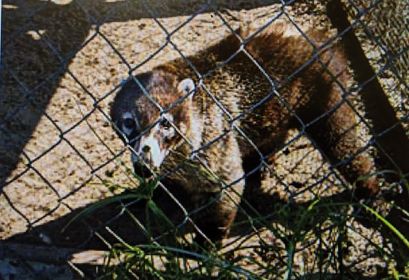
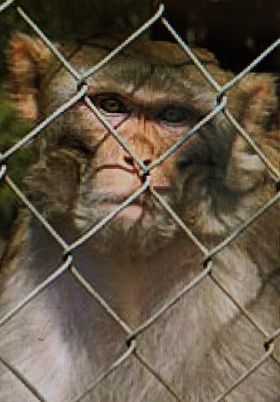
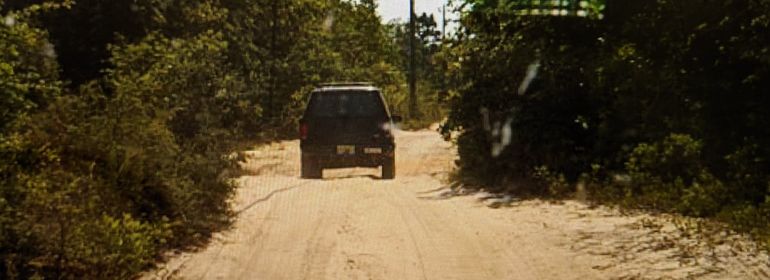
I’ve known Judy and have volunteered at SOS for quite a few years now. This was the first time I actually went out on a “Rescue” . What I saw appalled me. The lack of clean water, small dirty enclosures with little shade, animals that were obviously malnourished. One volunteer and her family were doing their best to care for the animals but the job was obviously physically and financially overwhelming. My first thought was how did this situation get so bad and why wasn’t anyone helping? This
situation didn’t happen overnight and how could anyone say these animals were being properly taken care of. Our situation at SOS was that we only had one enclosure open that was suitable for taking in any of the cougars so of course we took in the old blind girl and a companion she was used to.
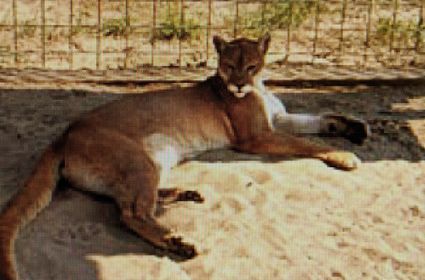
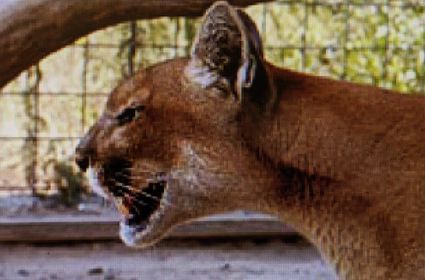
Since SOS is a non breeding facility, it never entered our mind to only look at the cougars that were intact and could potentially be used for breeding. One thing I like about SOS is that we take in what I consider last chance animals. In other words, SOS is their last chance at life because nobody else wanted them. Some of the animals may not be “Pretty” or “Good Breeding Stock” but none the less through no fault of their own, need a place to live out their years and be properly cared for. SOS quietly accepts these animals when other facilities who claim to do rescue, only appear to take in animals that meet their needs. I can relate first hand to this because after Katrina, I became very involved with a Doberman Rescue group in New Orleans and
have since adopted a 10 year old Dobie that no one apparently wanted because of her age and health issues.
Gary Borland
Sheena & Sweetpea explore their new home at SOS
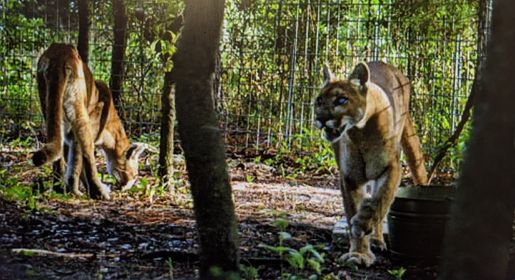
minimum square foot sand pit enclosure with almost no shade except an open box
made out of doors. Now they live in an approximately 1,200 square foot jungle with
trees, vines, leaves on the ground and a large, solid, cave like structure they can
escape to when the Florida storms come rolling in.
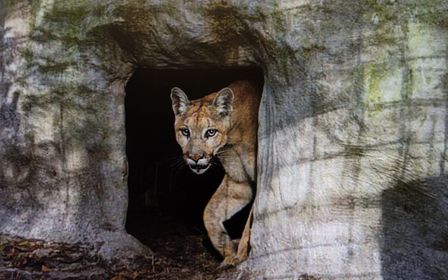
and Sheena grabbing logs and rolling on the ground with them like a new toy was
worth all the effort it took to get them here. Those are two happy & content cougars!
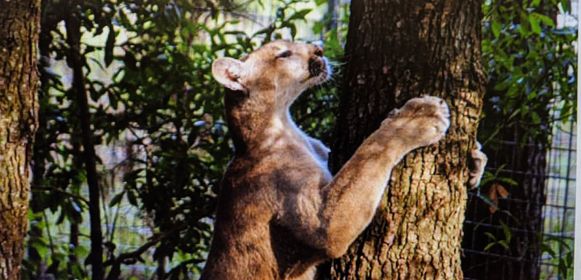
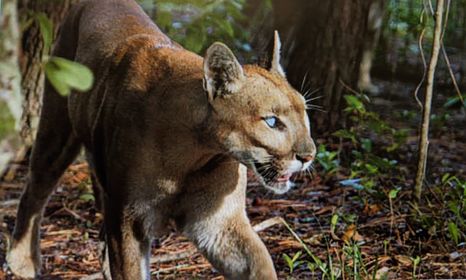
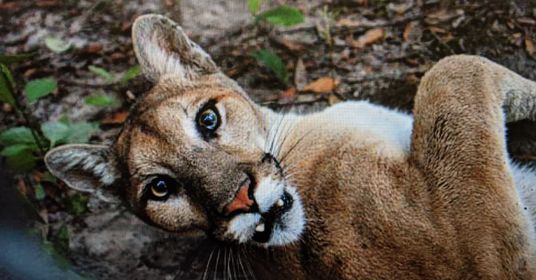
With all the activity going on over the rescue of the 3 new cats, looking for a golf cart for the sanctuary was not on Judy's priority list. However, thanks to the generosity of George at Peace River Campground and a number of volunteers, a much needed cart became a reality. Volunteer Gary Borland contacted George, a long time supporter of SOS, and quickly struck a deal to donate a used cart if volunteers chipped in to buy for the cart, new batteries, a battery meter, and a cargo rack for the back. The funds were quickly raised, the cart readied, picked up, and then delivered not only on Judy's birthday but on the day the cats arrived.
What a surprise!




Survival Outreach Sanctuary works directly with the USDA to rescue animals in need of a new permanent home. This rescue of 3 large cats involved thousands of volunteer hours before the transfer could even happen. Working every single day for literally weeks, numerous volunteers cleared the property and built 3 new large enclosures for these animals. Many of the volunteers were first-timers who gave unselfishly of their time, often working into the night to try and finish this project on time. Many phone calls and e-mails later, transfer arrangements were made through the USDA using the Exotic Feline Rescue Center of Center Point, IN. Sarasota In Defense of Animals raised the $4,500 fee to transport the animals from Illinois.
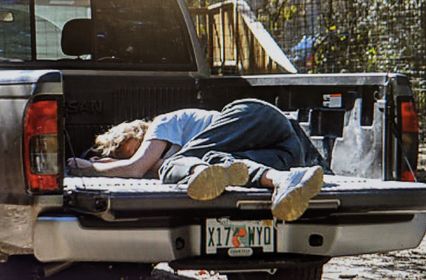
then, with a little time on their hands, they crashed!

the cats arrival.
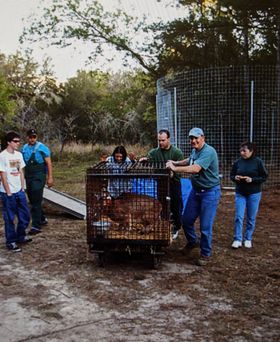
Sassy, the cougar, got unloaded without much trouble and was quickly
transferred to her new enclosure by 6:15 pm.
Getting Miss Rajah out was going to be a different story. The forklift
was getting stuck in the sand but a wire fence panel under the wheels
was finally used to keep the fork lift from sinking in any more. Miss
Rajah's cage was too large to turn sideways in the truck for the forklift
to pick up from the side. Plywood to cover the ramp wasn't available
and would have taken a few hours to get. The ramp on the truck
wasn't wide enough or strong enough on its own to hold the weight of
Miss Rajah and her cage so another plan had to be devised to get her
down. After much discussion, it was decided to unload Nahla first and then
use her cage to transfer Miss Rajah into since the forklift was capable
of lifting her smaller cage. Getting Nahla down wasn't too much
trouble but once she was at the enclosure opening, it took a bit or
persuasion to get her to go in. At approximately 7:41 pm she finally
stepped down into her new living quarters.

Now it was Miss Rajah's turn. The transfer cage was put back into the
truck, the door closed and after some time finally opened, Miss Rajah
was still in her green cage instead of the smaller one. The cage was
strapped onto the forklift endwise, raised off the floor and then
lowered to the ground after the transport truck pulled ahead and out
of the way. Just as Nahla needed some patience and time, so did Miss
Rajah. Finally, with much coaxing, around 8:52 pm she stepped down
into her new home.

Jon. Thanks to Dr Mel & Dr G from Zephyrhills Veterinary Clinic for all their
efforts in getting these cats into their new enclosures safely.
All the girls had various bumps and scrapes on their faces and were a
bit stressed from their long ride to Florida. At last word, everyone
seems to be doing better and settling in fine.

Work has begun on 4 new enclosures at SOS in preparation for a possible rescue of a number of large cats. Details are still being worked out but it looks like a few big cats may soon call SOS home.
SOS can use anyone who wants to volunteer to help build large rock shelters, help put up metal wire for the new enclosures, or help clear the areas where the new enclosures will go. Donations will gladly be accepted for the new expansion fund to purchase the materials and wire necessary to build the new enclosures. More information will follow as details are worked out. Currently, we are trying to get enough donations to cover the $4,500 cost of transporting the animals here from up north.
For more information on how you can help or volunteering at SOS, e-mail us at [email protected]
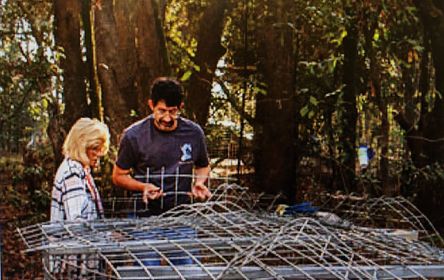
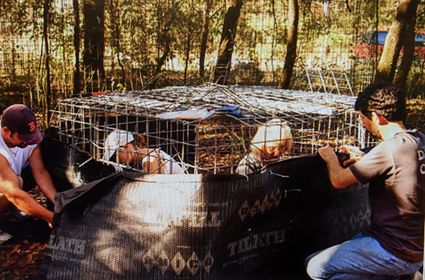
The lath will then be covered with concrete.
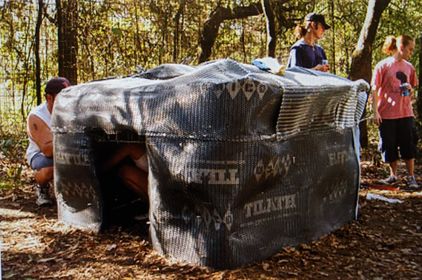
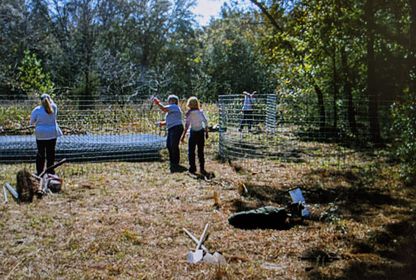

second level of an enclosure
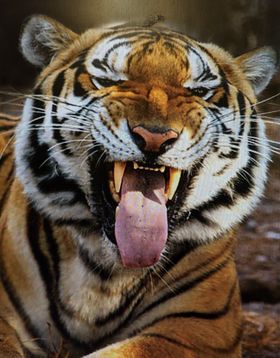
to stay 😉
Squeaker gets a friend, Her name is Martha.
This little porker ( Martha) was found by the SPCA in Sarasota. Friends of SOS adopted her until they heard about poor sad and depressed Squeaker who recently lost her friend Pig Lee. When they found out we were looking for a friend for her, arrangements were made to bring her to SOS. Squeaker is being a little pushy right now, but Martha just walks away. At least the new arrival has Squeaker up and around and not being so depressed and sad after losing Pig Lee.



Thanks to the generosity of Larry Borland, this 10x12 shed has found a new home at SOS to replace the one destroyed by hurricane Charlie.

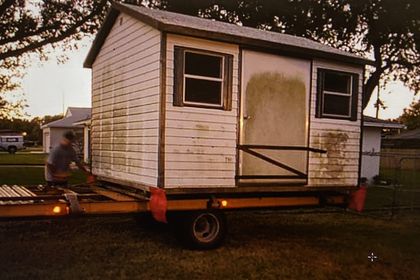
The Center sustained a considerable amount of wind damage to a large
number of trees on the property. Much of the protective shade the primates
needed was destroyed. Many of the paths on the property were also
blocked with fallen trees and limbs. Volunteers helped cut down the
damaged trees and broken limbs.

Our friends needed our help and we gave it:
These are pictures taken Saturday August 21st. on our volunteer day at the Center for Great Apes in Wauchula. SOS in conjunction with the Roots & Shoots kids that have volunteered here for 3 yrs, traveled to Wachula to help clear the debris left by hurricane Charley. By the time we left Saturday, almost all the paths were open again and a lot of the smaller debris had been moved to piles the heavy equipment could remove. Thanks to everyone who came and helped another sanctuary in their time of
need.
Judy Watson


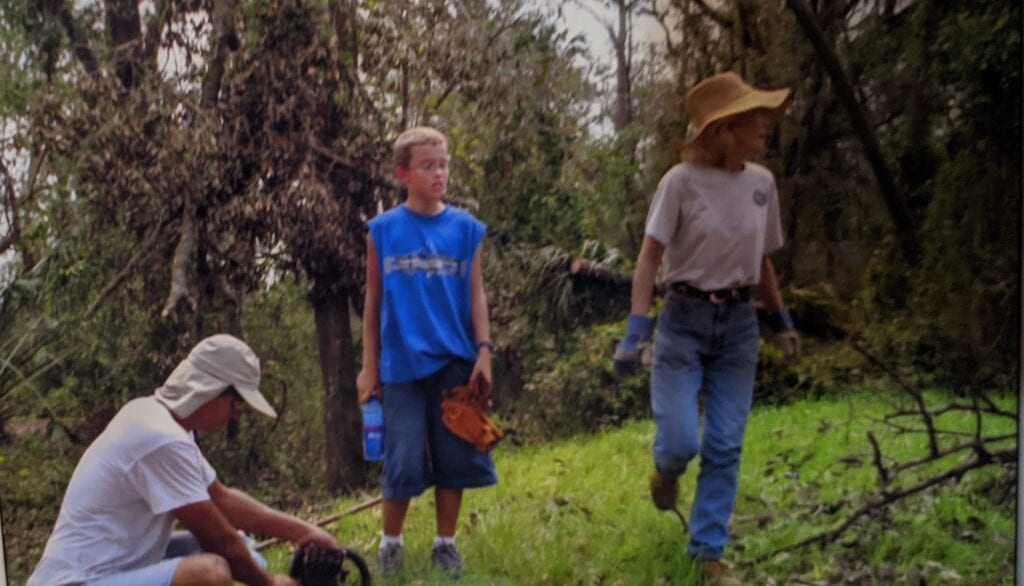
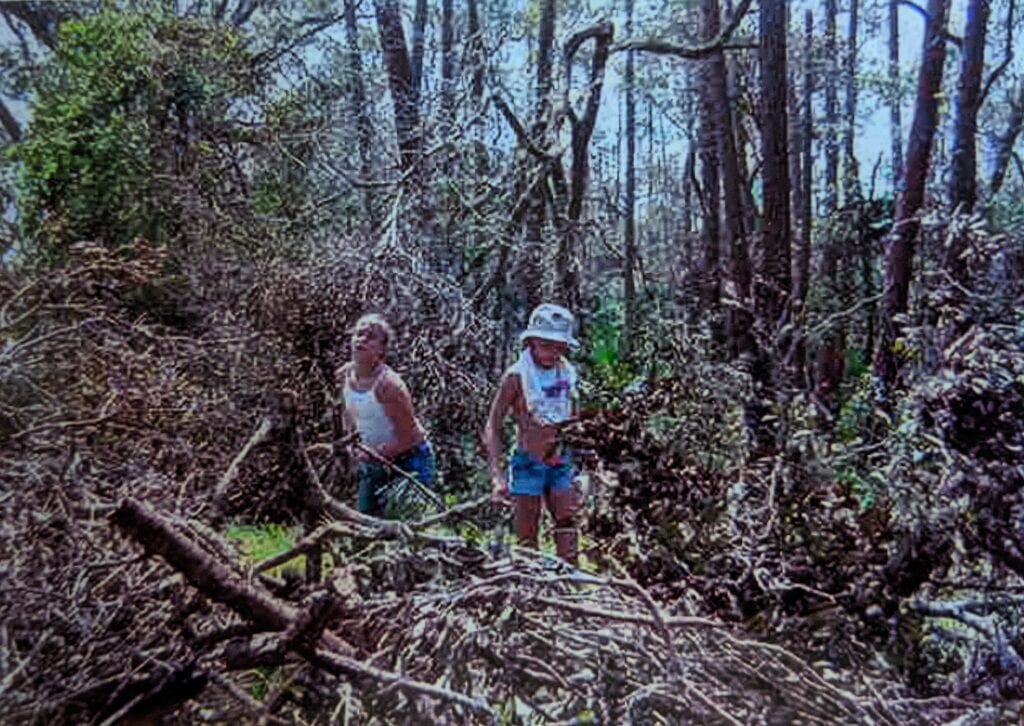



Presentations to school groups by Judy Watson with cougar Jayla regarding the plight of the Florida panther, Clyde from the Nature Center with his raptor, and Dr. Jane Goodall presenting the Roots and Shoots program.
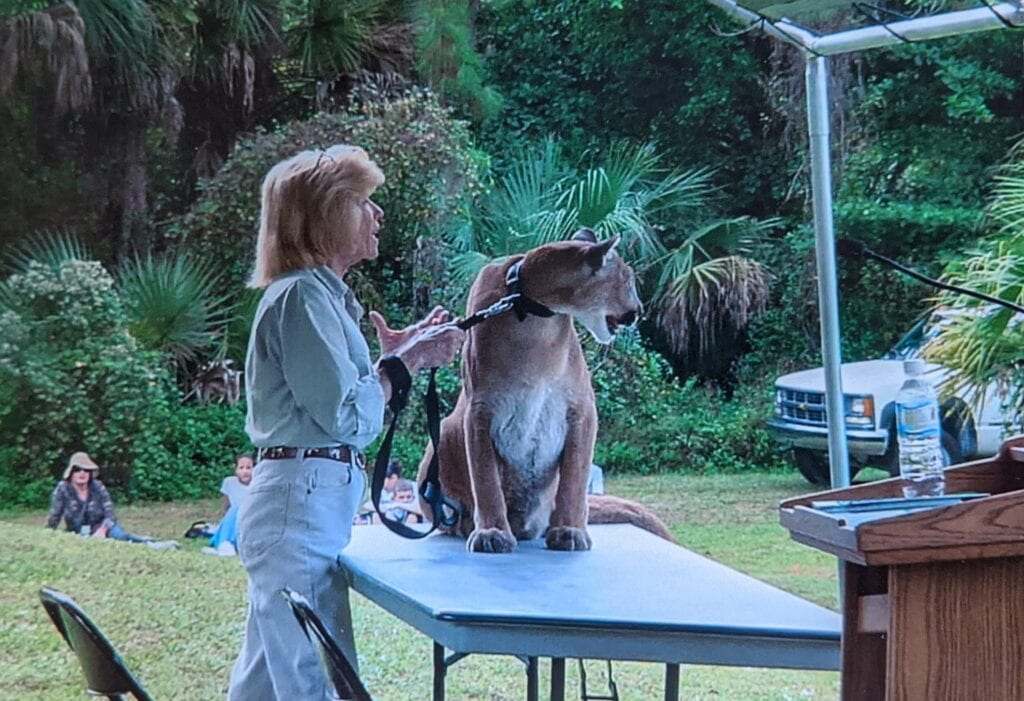
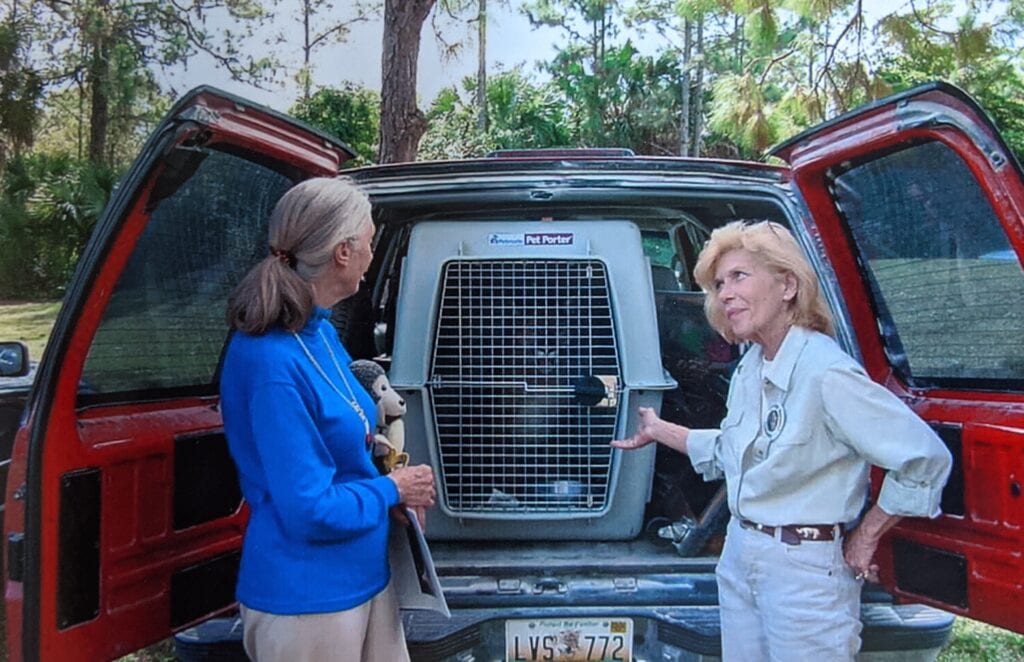
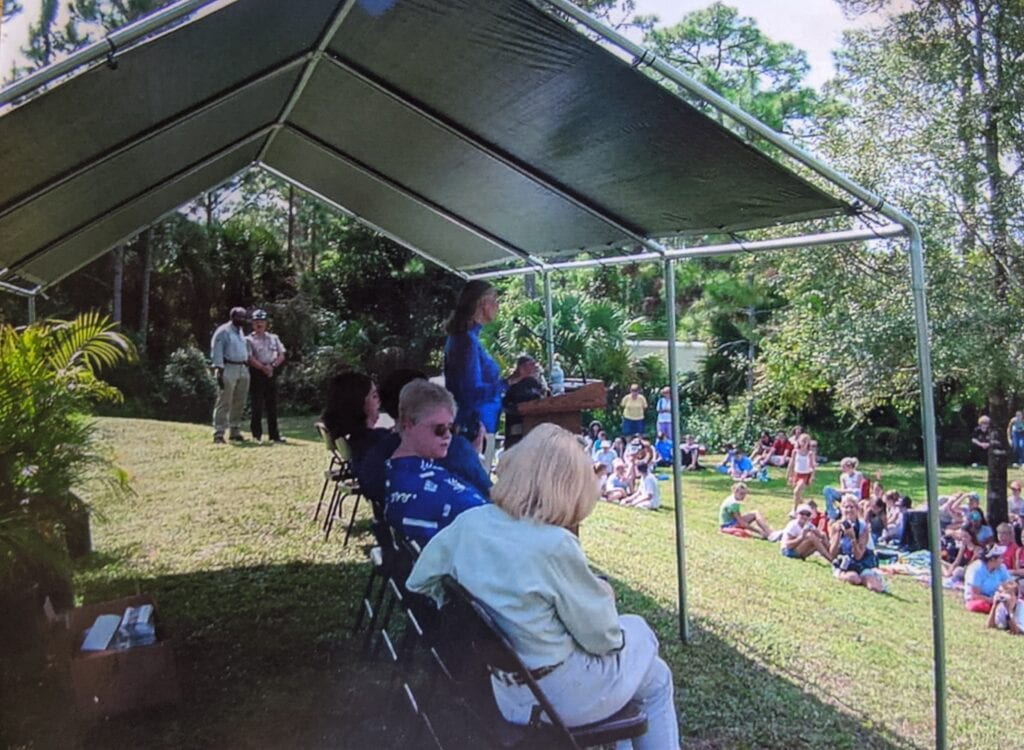
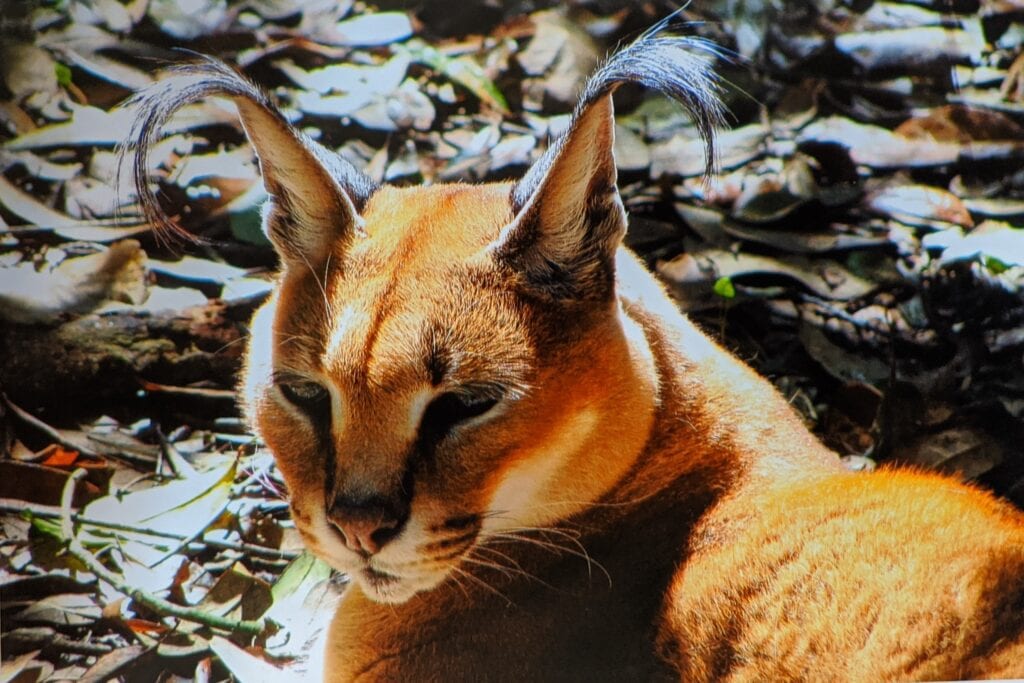
Two caracals, Maverick and Sasha, have arrived. They are healthy and beautiful. They were given to us by a friend that moved into a new location and was unable to take them. They were loved and well taken care of.
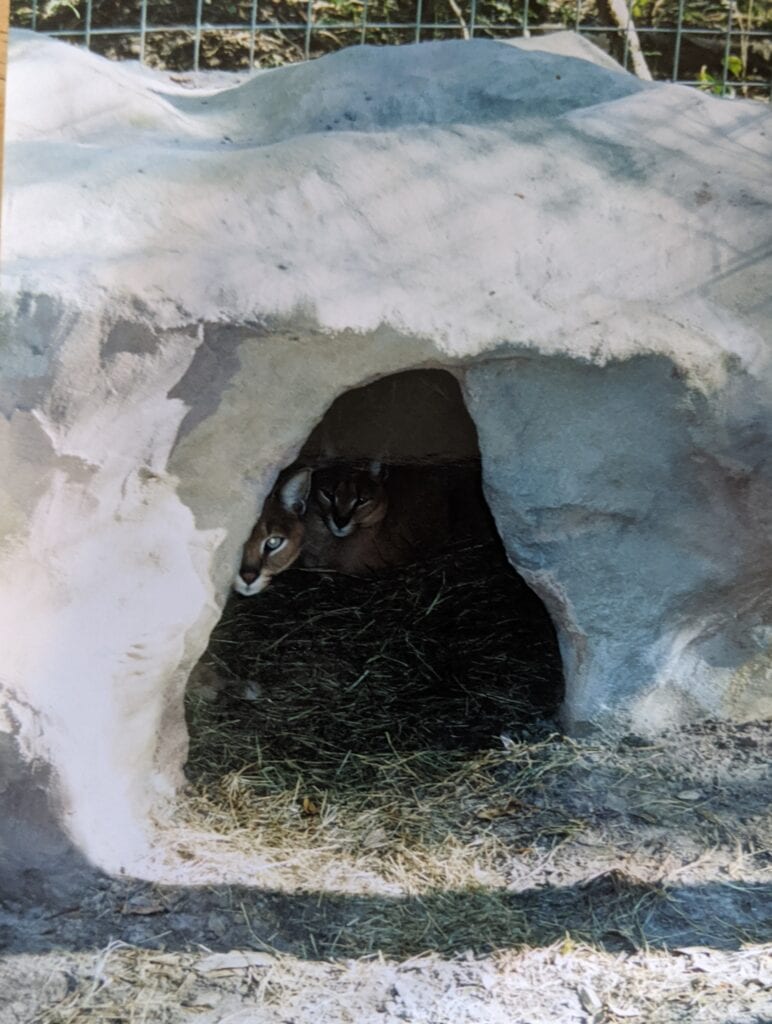
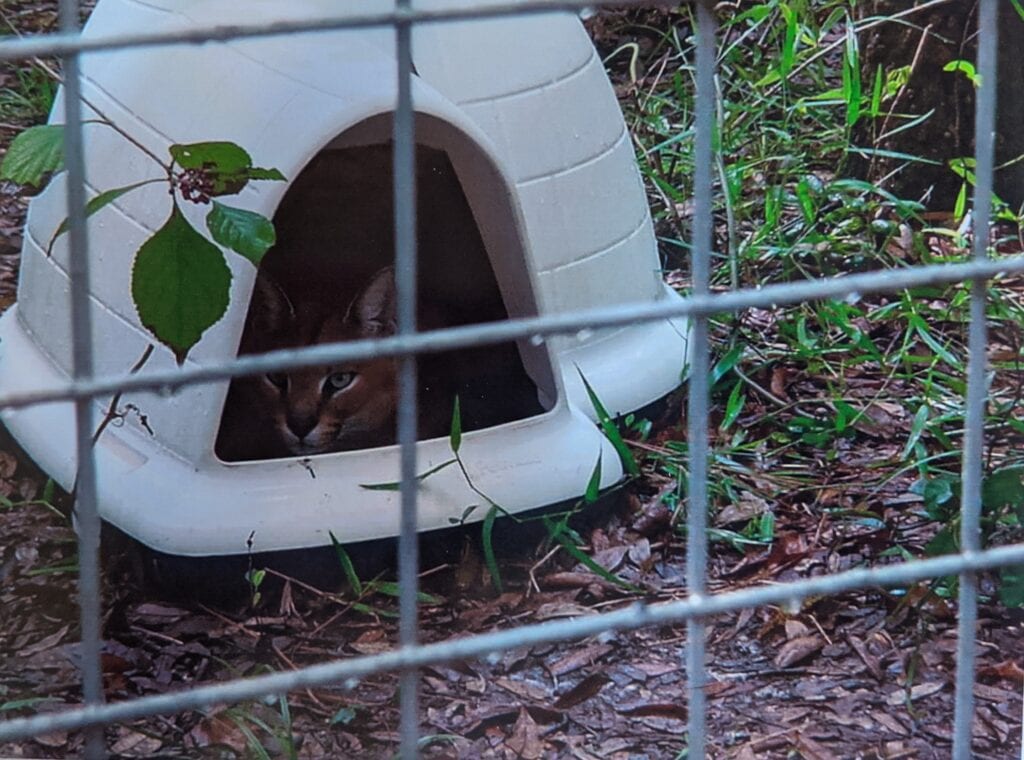

Building new rock enclosures and a new habitat for the expected arrival of two caracals.


Little Girl and Big Sister, two cougars born 1/8/1991, were raised as educational ambassadors. They had many appearances in schools and events to raise awareness towards the plight of the Florida Panther.
To see some pictures of their life over the years, click on the link below. https://youtu.be/C82NIwCQ--Q




I received a call in August of 2001 to see if I could provide a permanent home to a tiger, Rajah, a 14 week old tiger who was taken to a vet clinic in N.C. to be euthanized at the age of two weeks because he was unwanted.
The breeder was breeding for white tigers so orange tigers become disposable items. He arrived at the animal hospital, hairless, with scabs and poor vision. The ladies at the clinic saved his life by taking him home instead of killing him. At least 10 families cared for him taking turns taking him home because he needed 24 hour care. We received a call asking us to provide a life time home for him and he was picked up in September of 2001.

Rajah meeting a stray dog, Marvin, that adopted us and lived here for the rest of his life.
Article Dated: Monday August 6, 2001
Published: The Tampa Tribune
FINDING SANCTUARY
A Permanent Home For A nimals With No
Place To Go By Lorie Jewe ll
Gowers Corner - Jayla takes regal strides from one end of her living space to
another while next door, Rudy pounces playfully on a long stick. Nearby, Bosco leaps effortlessly between tree branches and Rat gnaws on a raw corn cob, twirling it slowly while making the rows disappear. Piglee sleeps soundly, oblivious to her neighbors including a newly arrived pack of six wolf dogs occupying a 3,500 square foot holding pen across the way.




It's a rather ordinary day for the residents of Judy Watson's Survival Outreach Sanctuary. Watson left a job last year as education director at Wildlife on Easy Street, an exotic cat sanctuary in northwest Hillsborough County, to launch her own facility for homeless creatures. I'll take anything that needs a home." says Watson who finances her operation through grants and donations. On 10 acres in north/central Pasco, Watson and
a cadre of volunteers began cleaning up and building fenced compounds in June. She incorporated the sanctuary in September. It wasn't long before an
abandoned mutt wandered onto the property, putting Watson's promise to the test. "He was absolutely starving to death; every bone in his body showed," Watson recalls of her first "rescue." She named the pooch Starvin' Marvin and moved him into the double wide mobile home she also shares with Bosco, a white-faced, brown lemur from Madagascar. A rear door to the home is surrounded by 14 foot high fencing that also encompasses a large tree with plenty of branches, giving the little primate easy access to indoor and outdoor living space. Bosco came from a breeder. At five months, he had never lived with a lemur family, or troop. So marvin has become a surrogate mother, while Watson's wild cats - Jayla and Rudy round out Bosco's animal family. "It's an absolute riot, "Watson chuckles. "But that's all he knows." Jayla at 4 is Watson' s ambassador for the Florida panther education programs she has been teaching students for several
years. Rudy is a 1 year old African serval. A South American nutria, a Floridamuskrat look-a-like, also has a home with Watson. She calls the critter Rat and delights in watching him eat corn on the cob much like a human does. "Nutrias are considered an enemy of the environment." she notes, explaining their drive to tear up anything in their way of finding food. "But he's so adorable. Isn't that the cutest thing you've ever seen?"
Then there's Piglee. Watson took in the piglet when it was small enough to fit in the palm of her hand. That was eight years and a few hundred pounds ago. Since she established the sanctuary, most of the calls for help have involved taking in horses, Watson says. She's not set up for that yet but plans to get a barn up as soon as possible. Plans For Future: Watson has a head full of other plans, too. She envisions two building being added to the
property, one to be used as a hospital for animals in need of medical care and the other as an education center, where students can learn about all
aspects of nature and the environment. She wants to see classes from area
schools come for daylong visits, to see the animals and take nature hikes
through the property. She's already discovered at least six varieties of
butterflies, lightning bugs, and wild blueberries and blackberries. She
hopes to get someone from the Native Plant Society out soon to help identify
more vegetation. At last count, there were 40 gopher holes scattered around
the property. Working Together Her most pressing need is to build a fenced compound for a pack of six wolf dogs she took in recently from upstate New York. The rescue illustrates another of Watson's goals -- to work cooperatively with other area agencies. Dawn Bednar, of the Largo based Federal Wolf Dog Rescue, got the call about the dogs a couple of weeks ago. Watson agreed to house them, and PAWS of west Pasco loaned Bednar a van she drove to New York and brought the wolf dogs back in. Watson has also forged a close working relationship with Jackie Farmer of the Hernando County Humane Society. "I think we can do more together than as single groups." Watson says, stressing another tenet of her operation -- no breeding of any animals, period. "My goal is to find solutions to the problem, not be a part of it." The wolf dogs, four males and two females who were spayed and neutered within days of arrival, are living in a fenced area Watson has designated as an emergency shelter for new arrival. They belonged to an elderly breeder whose health problems made it impossible for him to keep them. "These guys would have had a guaranteed death sentence if Judy hadn't taken them." Bednar said. Watson has an area with plenty of trees and foliage picked out to build a compound for the wolf dogs. Getting it done will take some time, though. Time is friend and foe alike for Watson's dreams. "There's so much I want to do, and it seems like it's slow going," she laments. "But on the other hand, I don't want to do anything in a hurry. It's taken me 17 years to reach this point, to do what's in my heart, I want to do it right."
Article Dated: Tuesday April 17, 2001
Published: THE ORACLE University of S outh Florida
Volume 38 No. 138
Earth Day comes early. Two organizations will host an event Wednesday to promote environmental awareness, conservation. By Selina Roman
Although Earth Day is not officially until Sunday, the Life Sciences Club along with Student Government will celebrate it Wednesday in hopes to educate students about the importance of awareness and conservation. More than 20 area organizations are expected to be on the business building's lawn from 10:30 a.m. until 2:30 p.m. promoting earth-friendly
activities such as water and wildlife conservation and recycling.
Greyhound Rescue, an organization that finds homes for racing greyhounds
instead of allowing them to be euthanized, will have about four dogs that
students can adopt. Organizations such as the Florida Aquarium and the Survival Outreach Sanctuary will bring snakes and cougars, respectively, to educate students that the animals need protection from development.
Judy Watson, found er for the Survival Outreach Sanctuary in Spring Hill, travels the nation with her cougar, Jayla, as a way to make the issue of
conservation and protection personal. "I want to make people understand the close relationship between people and animals," she said. "They are a redlight indicator of things that happen in our environment. If it's happening to them, it's happening to us." Besides educating, Watson also has a 10 acre sanctuary for exotic animals. Many were pets that the owners
couldn't handle. Some of Watson's menagerie includes a lemur, nutria and
potbelly pig. This weekend Watson expects a shipment of two tigers whose
owners kept them cramped in a horse trailer. Beside s presentations, the Florida Aquarium and Survival Outreach Sanctuary will offer volunteer
opportunities to students. Troy Valentine, vice president for the Life
Sciences Club, said the club is trying to give back to the environment through education. "It seems not too many people are doing things for the
environment." he said. "If you look at it, the world's population of animals and plants are being decimated. You need to at least do your park." Live music and free veggie pizza from Papa John's will also be available.
Article Dated: Wednesday, February 14, 2001
Published: Post and Courier by Ann Burger,
Charleston, S.C.
Any cat fancier who's watched the big-cat shows on the nature channel has noticed the resemblance between the leopard stalking a wildebeest on the Serengeti plain and the kitten stalking a bug on the kitchen floor. Most people know that the similarities, while striking, end where the
TV screen does. But there are those who conclude that a leopard is merely a
bigger, more exotic version of a house cat and decide to buy a little one to raise for themselves. How very wrong they are - wrong enough
to have kept Judy Watson busy for the past 17 years. That's how long Watson has worked at rehabilitation facilities for exotic animals. Last September, she took the step from being a volunteer to being top cat - she founded the Survival Outreach Sanctuary, a nonprofit, nobreeding
sanctuary in Spring Hill, Fl. Watson will be one of the conservation
exhibitors at the college of Charleston's Lightsey Conference Center during this weekend's Southeastern Wildlife Expo. She'll have with her a cougar named Jayla, a serval named Rudy, a whitefaced brown lemur named Bosco and an African Hedgehog named Homer. Watson says the cougar is her ambassador representing the endangered Florida panther - one of her special causes. The Survival Outreach Sanctuary cares for all kinds of exotic wildlife that people have given up on because the animals turned out to be more - much more - than they bargained for. "People think they're going to make pets of them like they would a cat or a dog, but they have no clue what it takes to raise these animals," she says. "They don't lose their predatory instincts as they get older. Often people are looking to
get rid of them when they're six months old." The goal of the sanctuary is to
rehabilitate the animals and release them back into the wild - and to educate people about them. Education starts early, with the sanctuary
spending much time offering programs for school children. "Our main goal is to be sure people learn that these animals are not meant to be pets," she says. The cats Watson will bring to Charleston are not "pettable." She says
allowing people to touch them would contradict her message that these
animals are best appreciated at a little more distance. While people can't
touch them, simply seeing them is enough to forge a bond, she says.
"With the animals, we can get people's attention and make the dangers that
they face more personal for people," she says. Also, people end up standing
around looking at these beautiful animals, and then they start talking to
us about them. "That's how attitudes change."

Dear Friends:
Welcome to the first newsletter of Survival Outreach Sanctuary, for
Wildlife. A dream come true for me which has been made possible through the love and support of so many people. I would be remiss in not thanking each and everyone personally for their hard work in so many areas.
Firstly, a great big THANK YOU to my Mother and my Sister, Ligia and Sylvia
Fernandez. Without their support this would not have been possible. Their love and support throughout life's trials and tribulations are unmeasurable and will never be forgotten. The property was purchased in June and
the move began, a move I will never forget! To move a double wide mobile and build five enclosures immediately is no small task. A special thanks to Barb Collins for lending us her RV to stay in while the move took place. Living in a 23ft. motor home for over a month with Jon McKinney, five house cats, a dog and a parrot is an experience I will always remember.
The cage building began at dawn and ended at night, and continued seven days a week for approximately three months. Thanks to all the help, Jayla a
cougar has a spacious 3,000 square foot enclosure, 14' 4" tall that goes up
and around trees for her to be able to climb and run at will.

Rudy, an African serval has a 1,500 square ft. enclosure with trees to climb., a whitefaced brown lemur has a wonderful enclosure with trees and, of course, an additional attachment to the house so he may continue to come in at night. Our nutria's enclosure is outfitted with two ponds for swimming and many hiding places. Pig Lee, my pot bellied pig has a spacious area with her own personal house. Her door is always open in the daytime so she may
wander freely.
Special Thanks!
Thank you for the help cleaning up the property: Tom Watson, Richard Naismith, Carolyn Kuenzli, Jon McKinney and Garry Costello, Carol and Ray Deller.
A special Thank You to those that took those wonderful day trips with me to the dump. Now there is an experience! Some have never come back!
Thank you, to those that come out and help in all other areas: Jane Field, Richard Naismith, Carolyn Kuenzli, Jason Bearse, Tom Watson, Steve Petrone, Garry Costello, Joan Richards, Sylvia deJesus, and Jennifer Hoffer.
Thank you Bird Bytes Computer Stuff of Spring Hill for all the help with my computer
Thank you to my wonderful veterinarian, and friend, Dr. David Danielson.
Thanks to all of those who pitched in and helped building the cages and
enclosures: Jon McKinney, Brett Creamer, Shawn Martin, Debbie Sandlin, Troy Valentine, Jason Bearse, Matt Shortt, Jason Buck, Jim Moore, Tom Watson, Garry Costello, Jennifer Adair, Jennifer Hoffer.
Thank you to those who have supported me for seventeen years
through thick and thin and have never lost faith in my efforts:
All my friends at the Peace River Campground, Friends of Conservation
Southeastern Wildlife Expo, Mike, Robin and Mickey from the Florida Wildlife Art Expositions, Absolutely Abyssinians Cat Club, Cats Exclusive and Richard Bilello, Shirley Murphy, Dan Ponton, Lilly Mehl, Jim Fowler
Judy and Sam Speraw, Greg Galvis and Julia and Cat Fancier of Daytona Beach.
Please don't go away as the work is just beginning. Building a hospital to begin our rehabilitation and building an environmental learning center for field trips and summer camp are on the agenda . Our first priority, however, remains a perimeter fence which will enable us to provide permanent homes to larger animals. If you can help in any of these areas or would like to come out to volunteer, please call. I hope that you will find our newsletter enjoyable but more importantly, educational. We will strive to bring information to help you protect our natural resources. Please help in our efforts to bring a halt to animal abuse. Only through our voices will we be able to effectively make a change. We will keep you appraised of stories as they reach us.
Sincerely,
Judy Watson,
Founder
Executive Director
